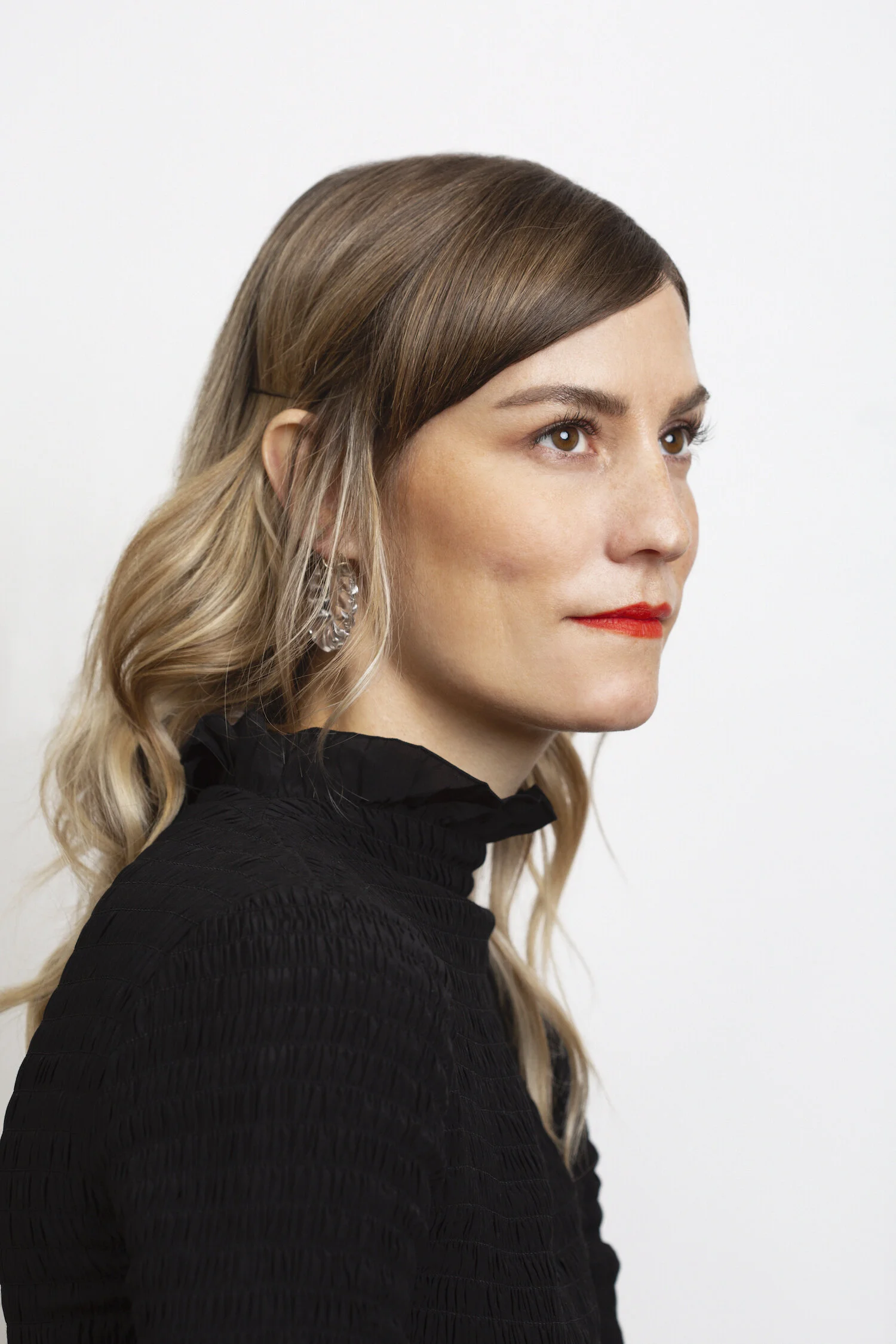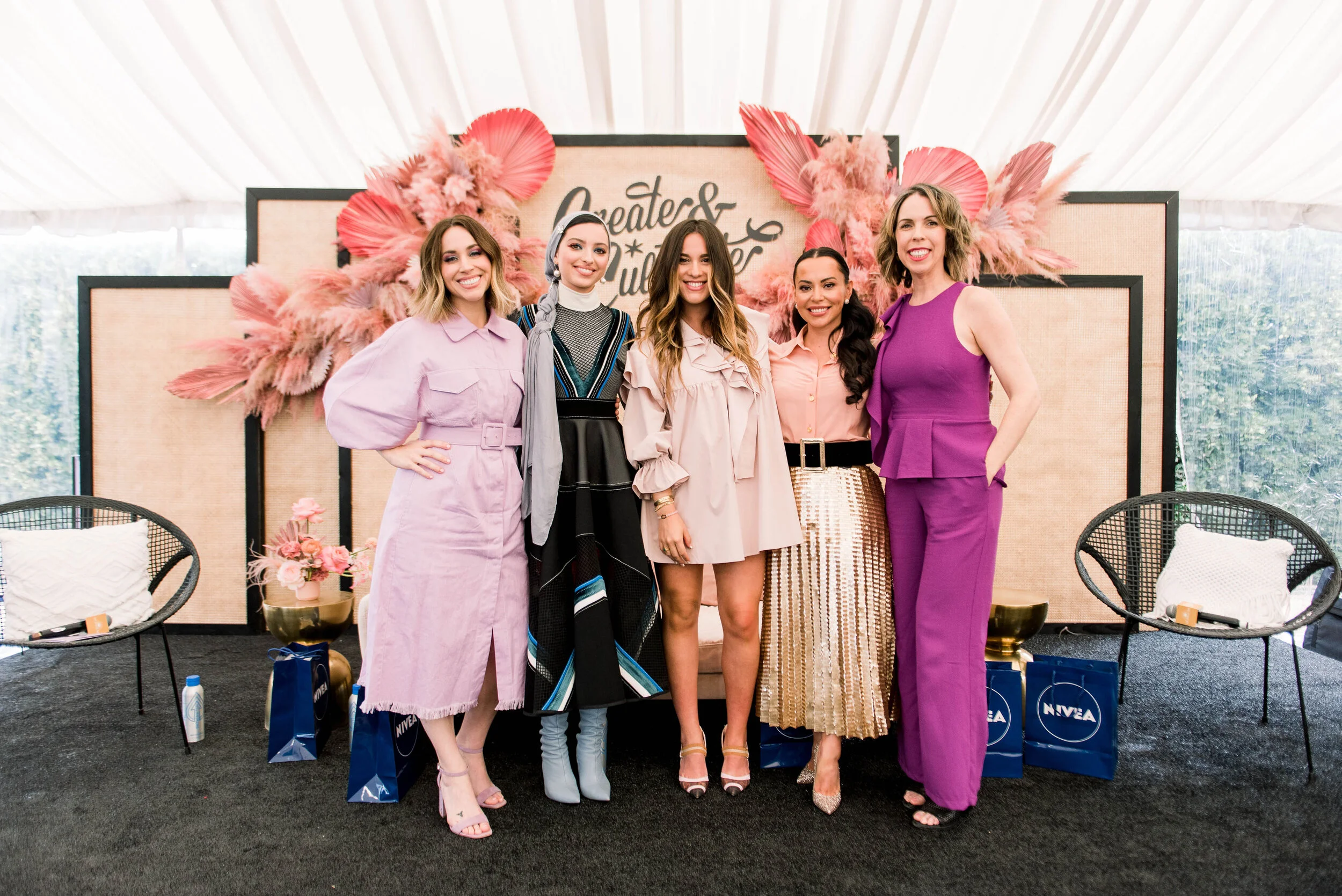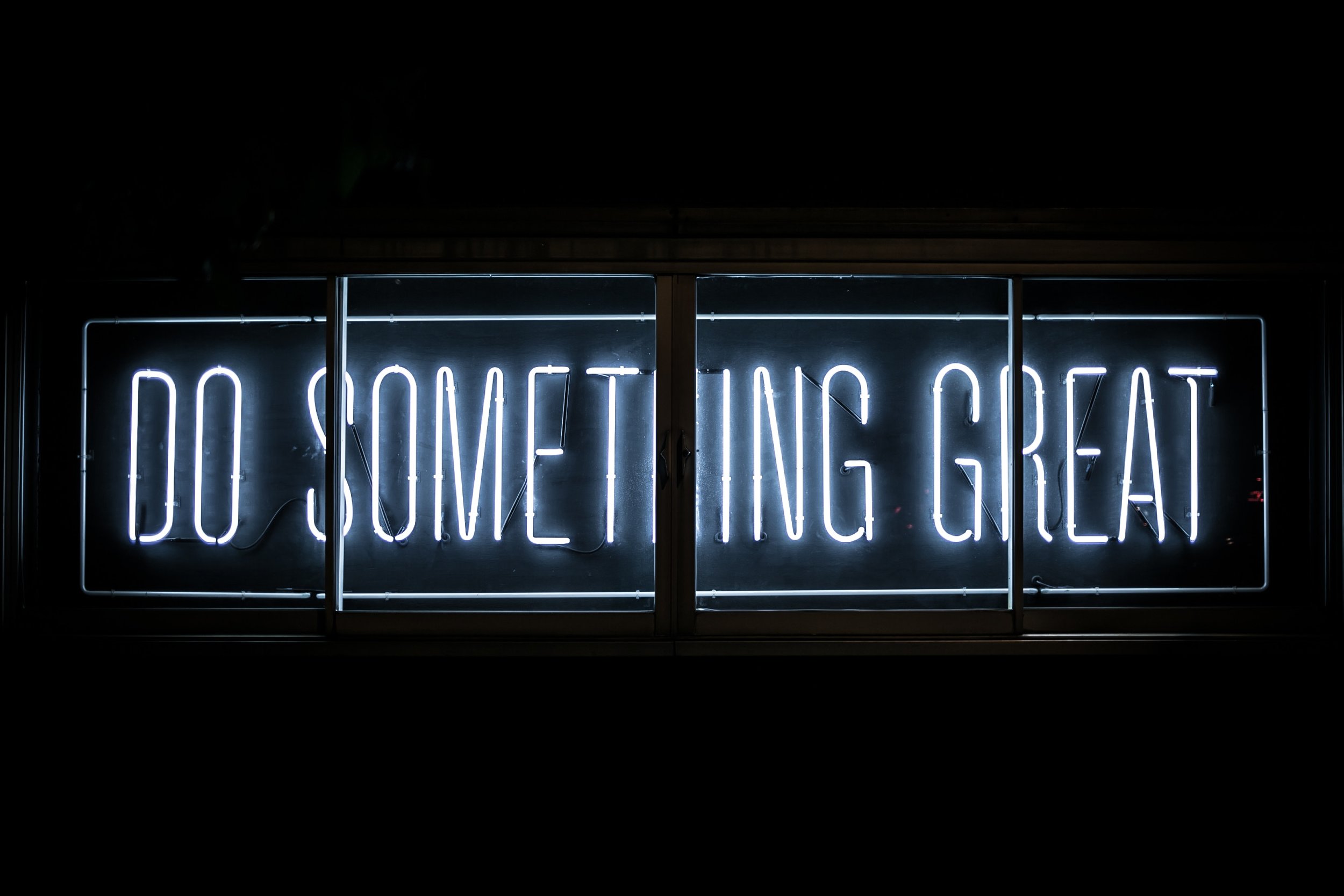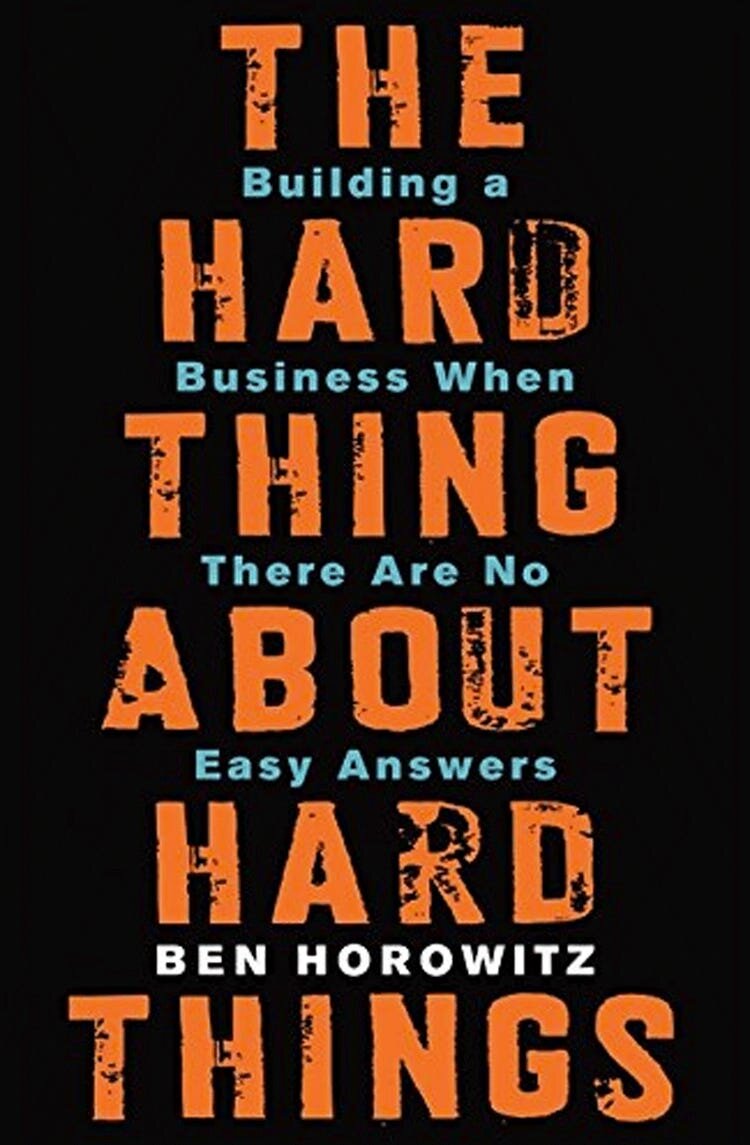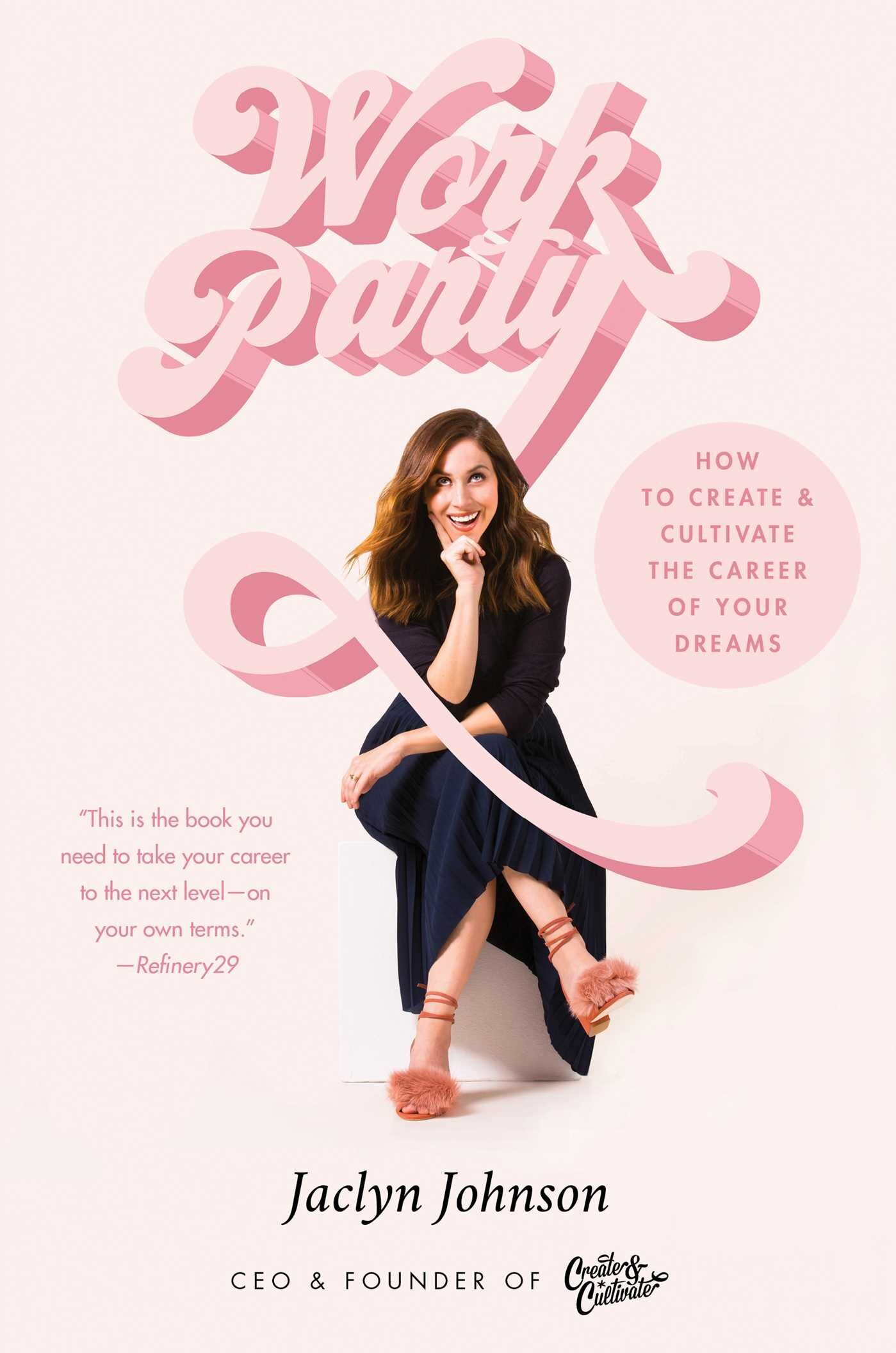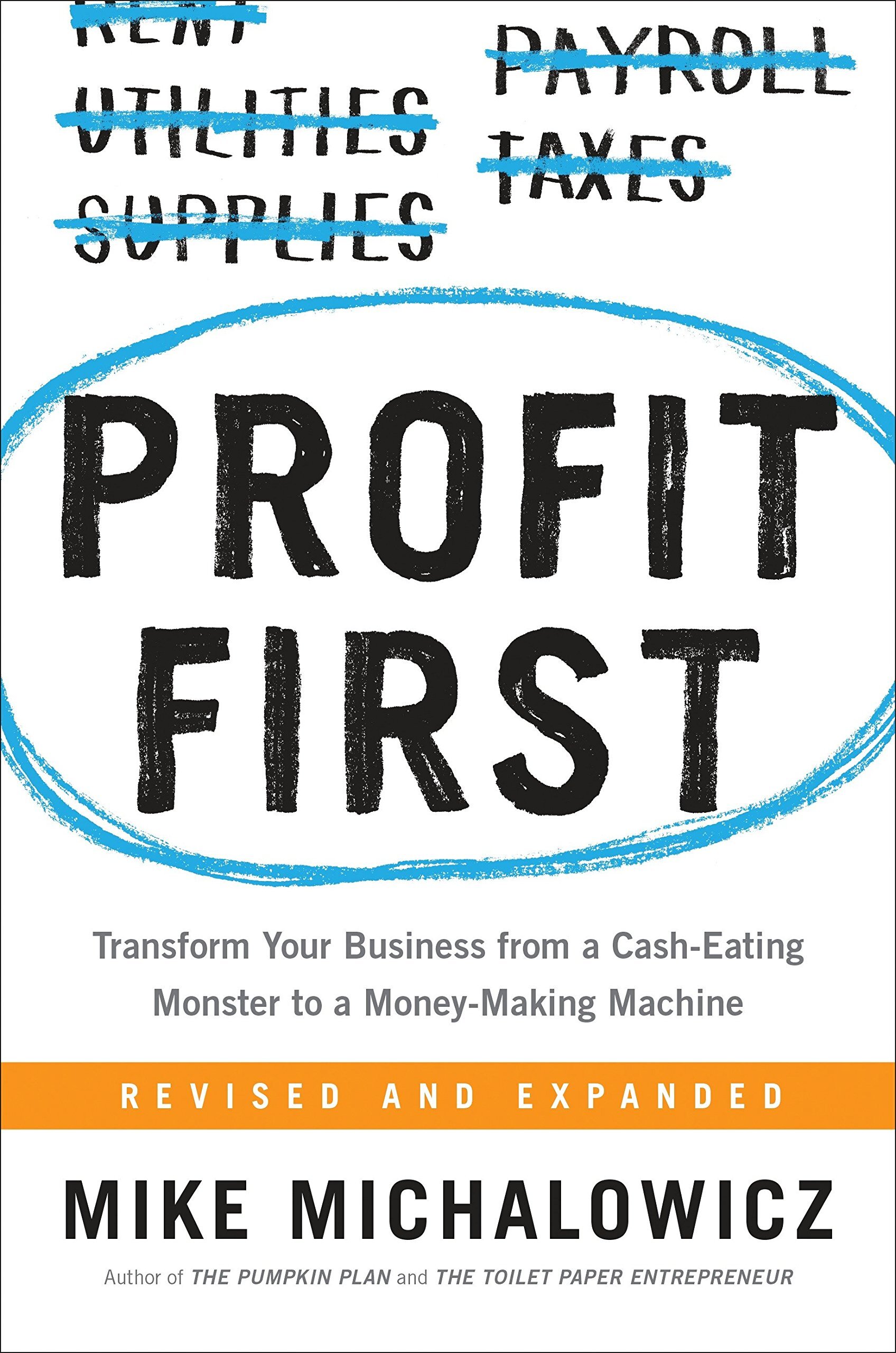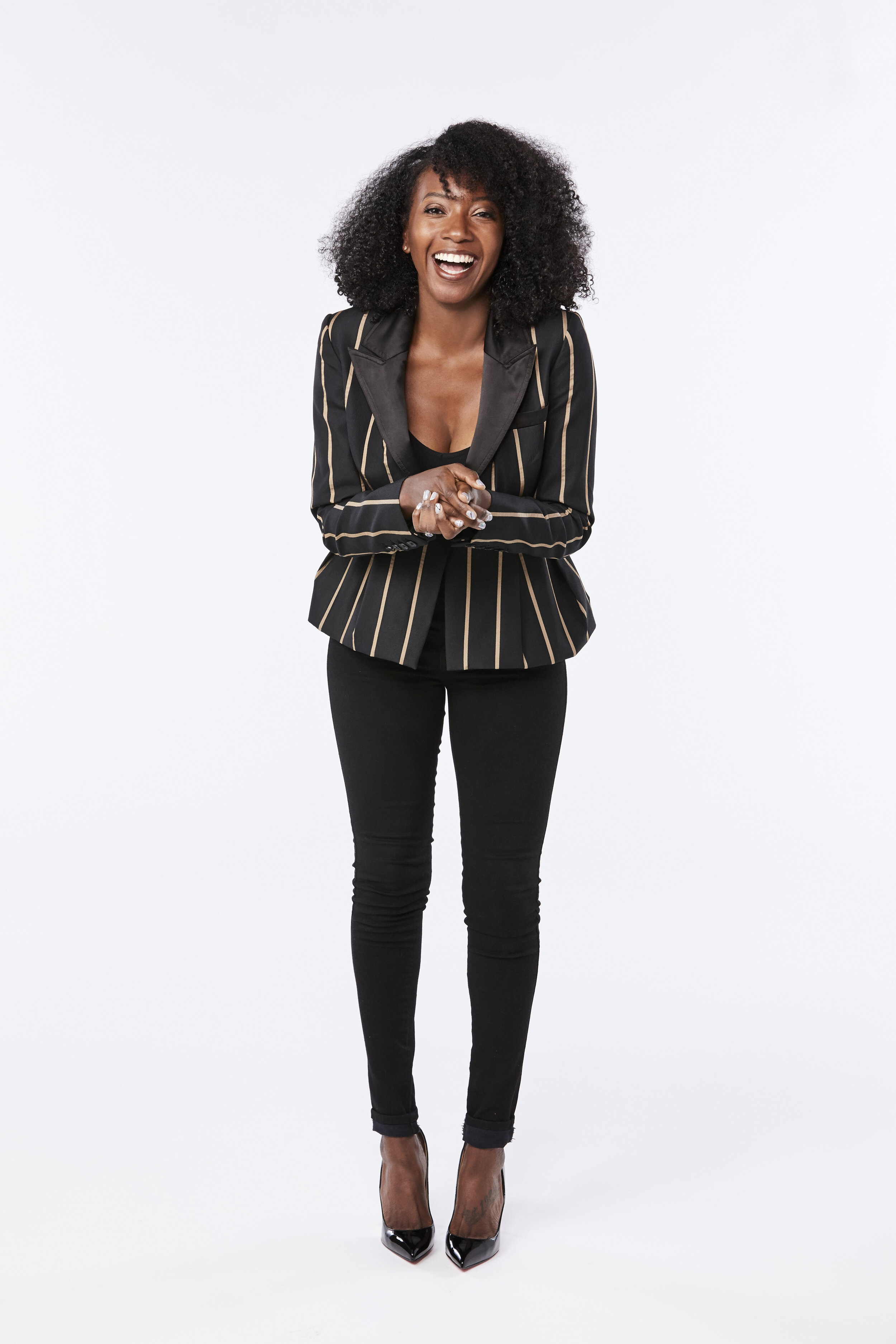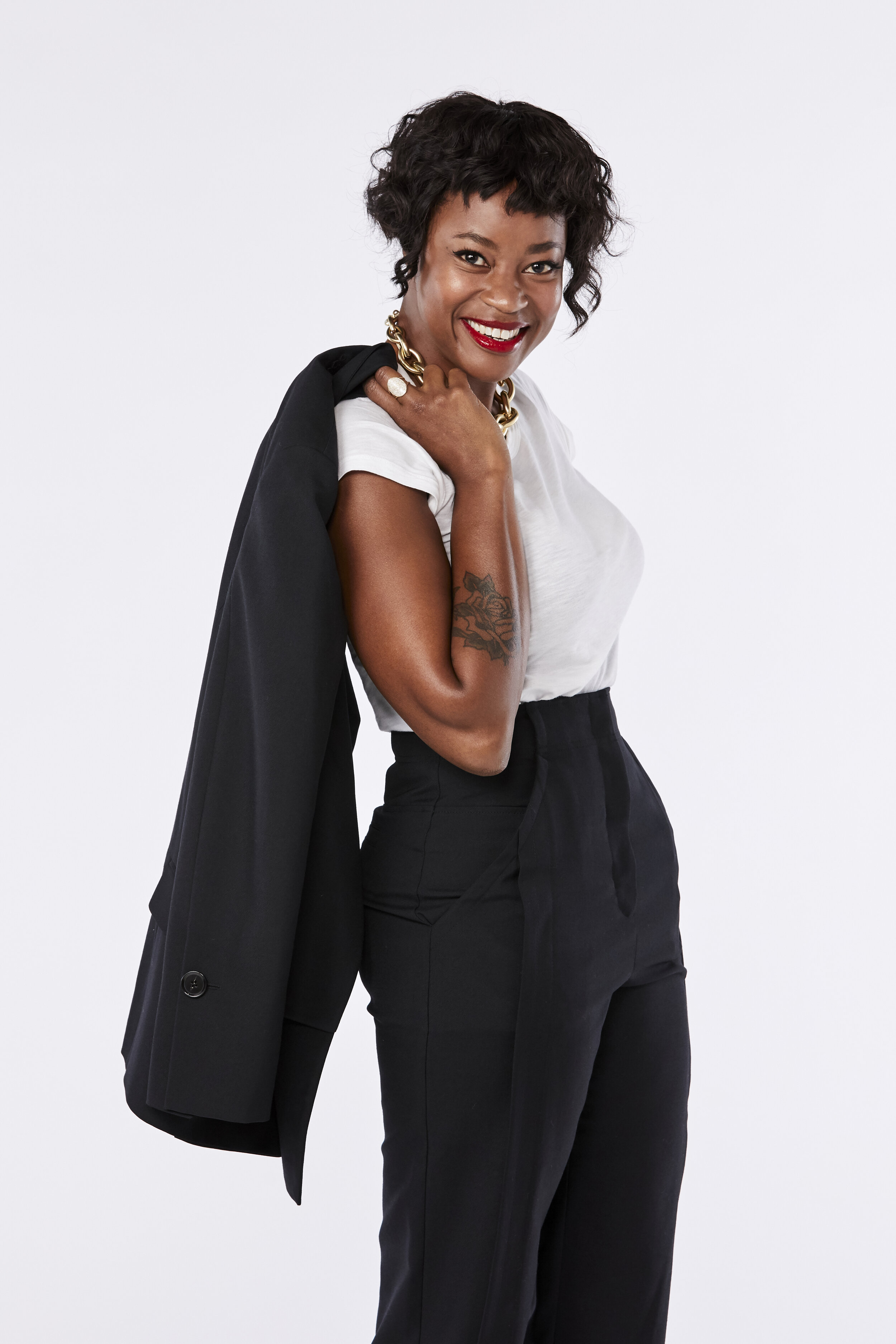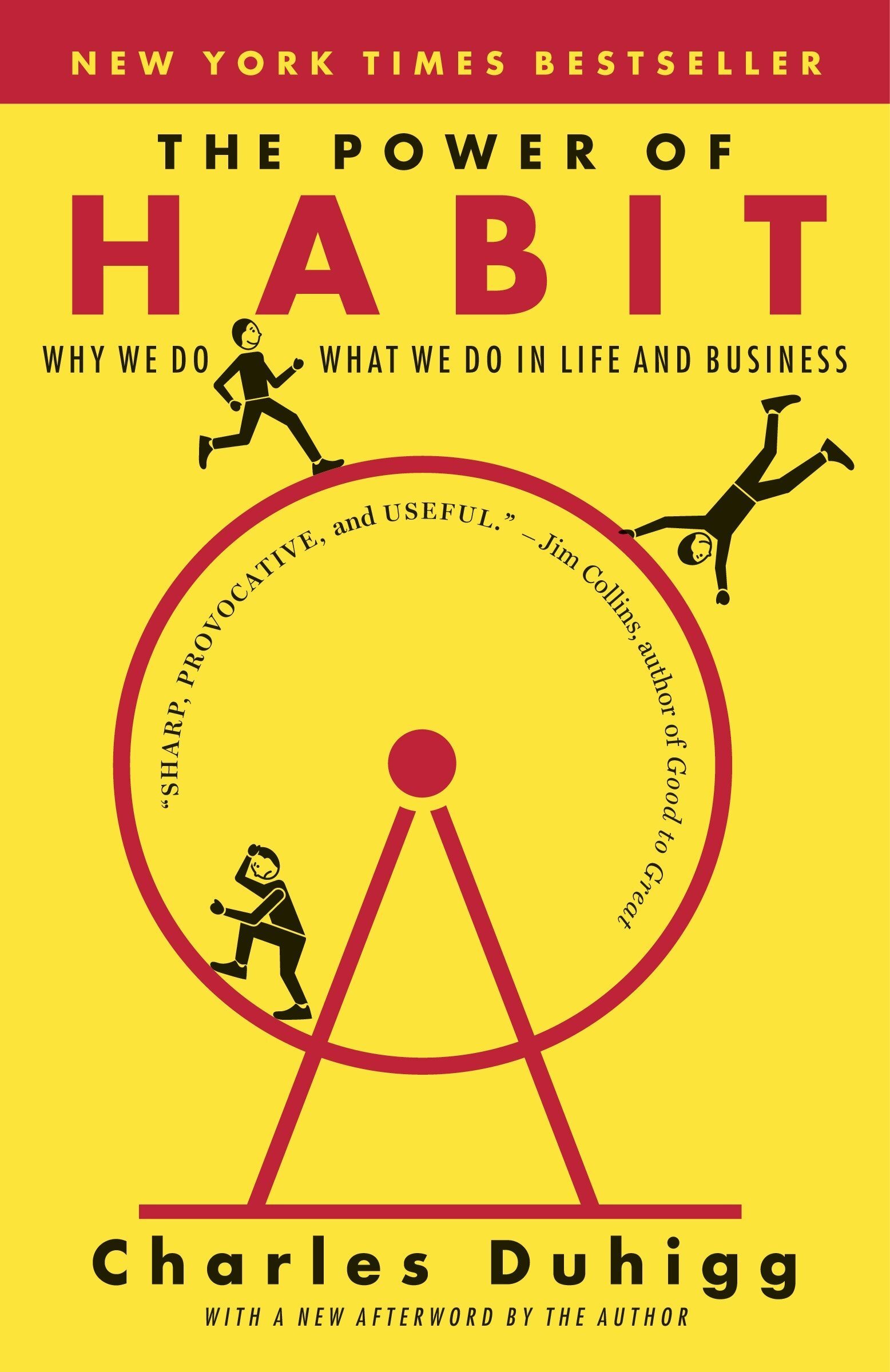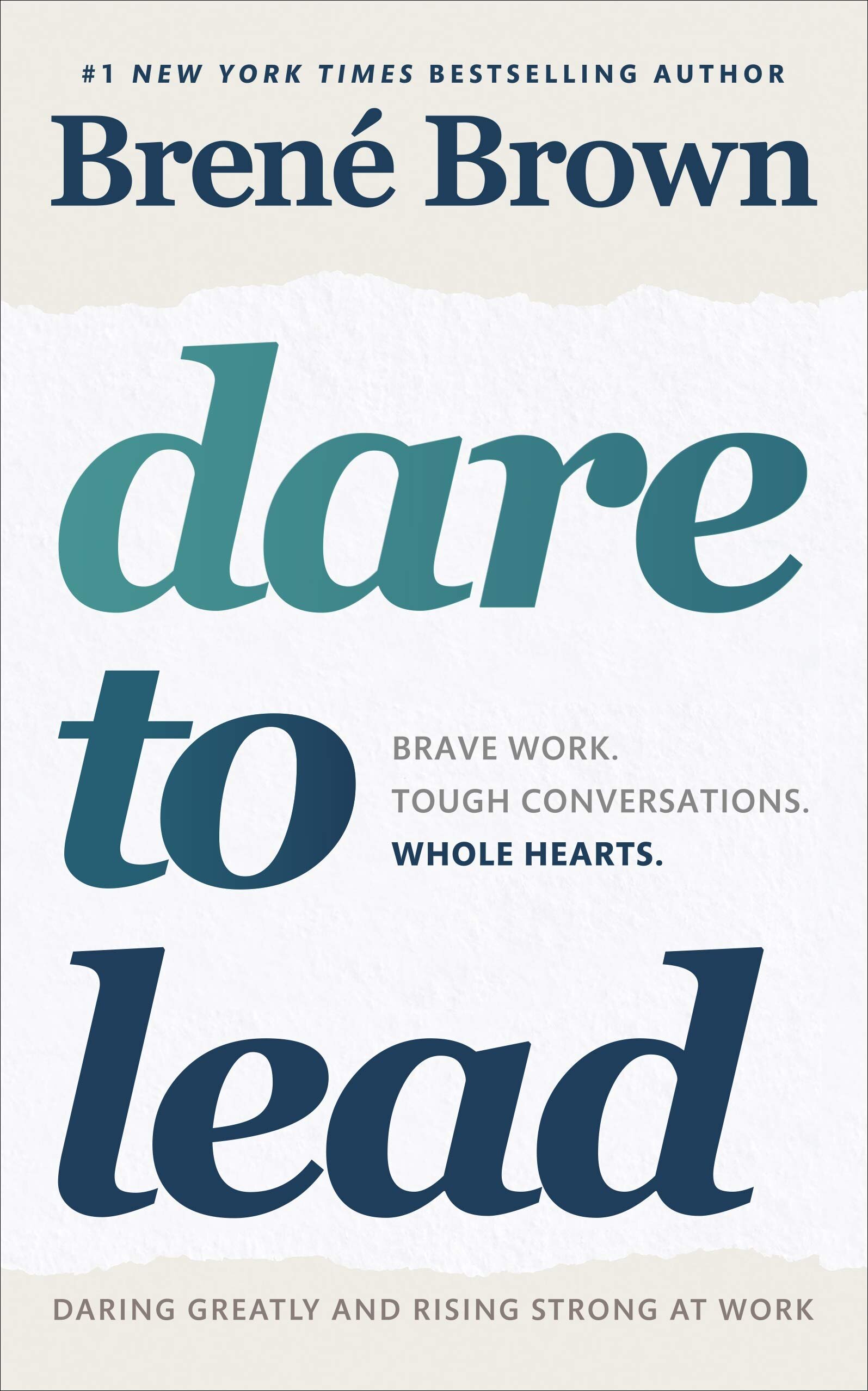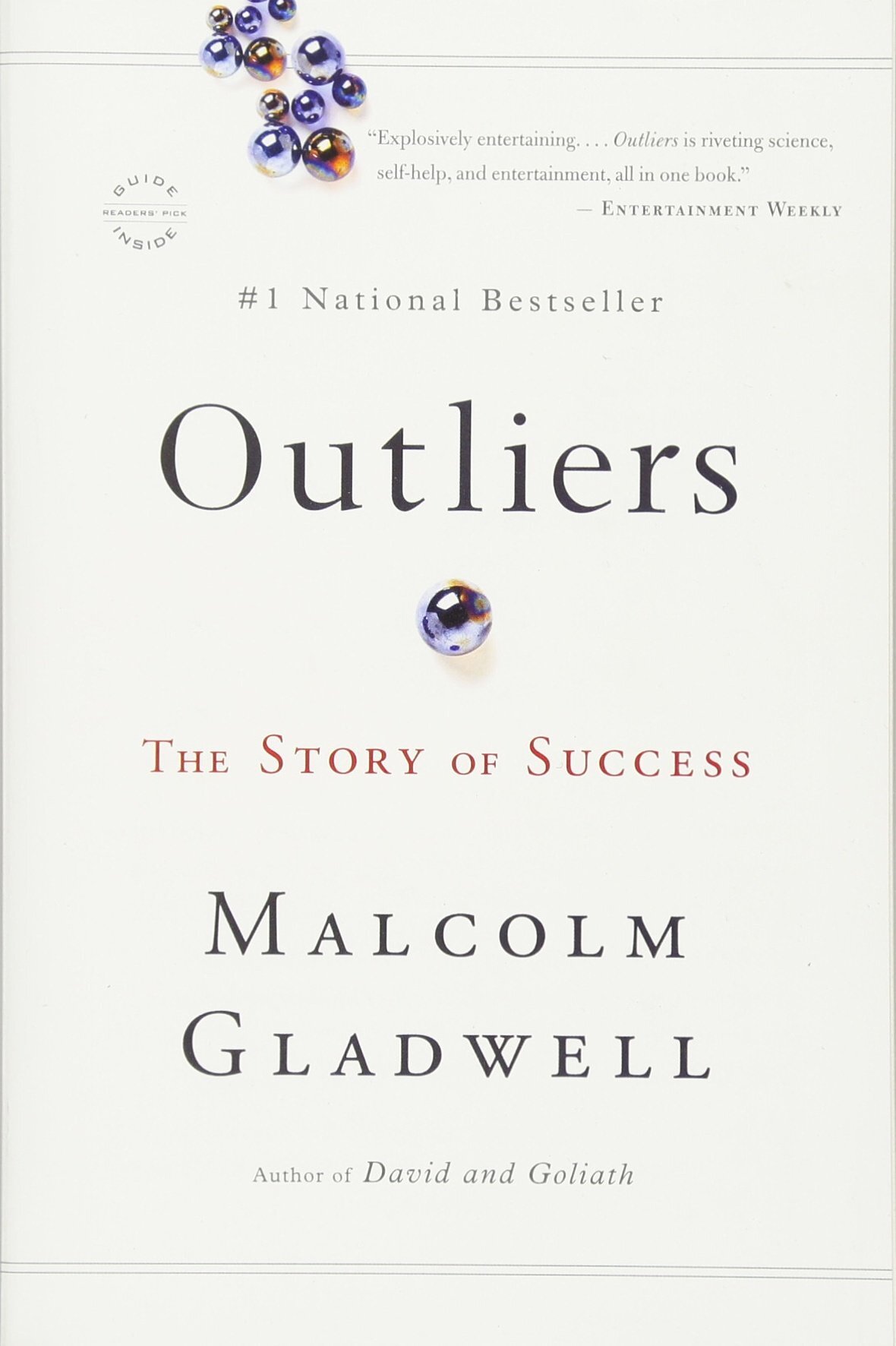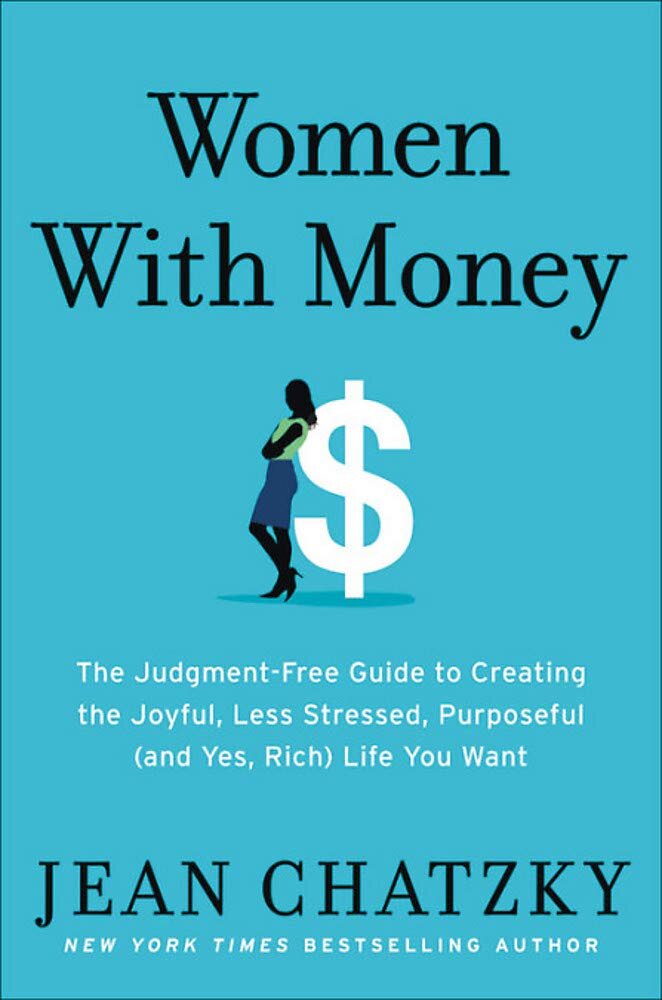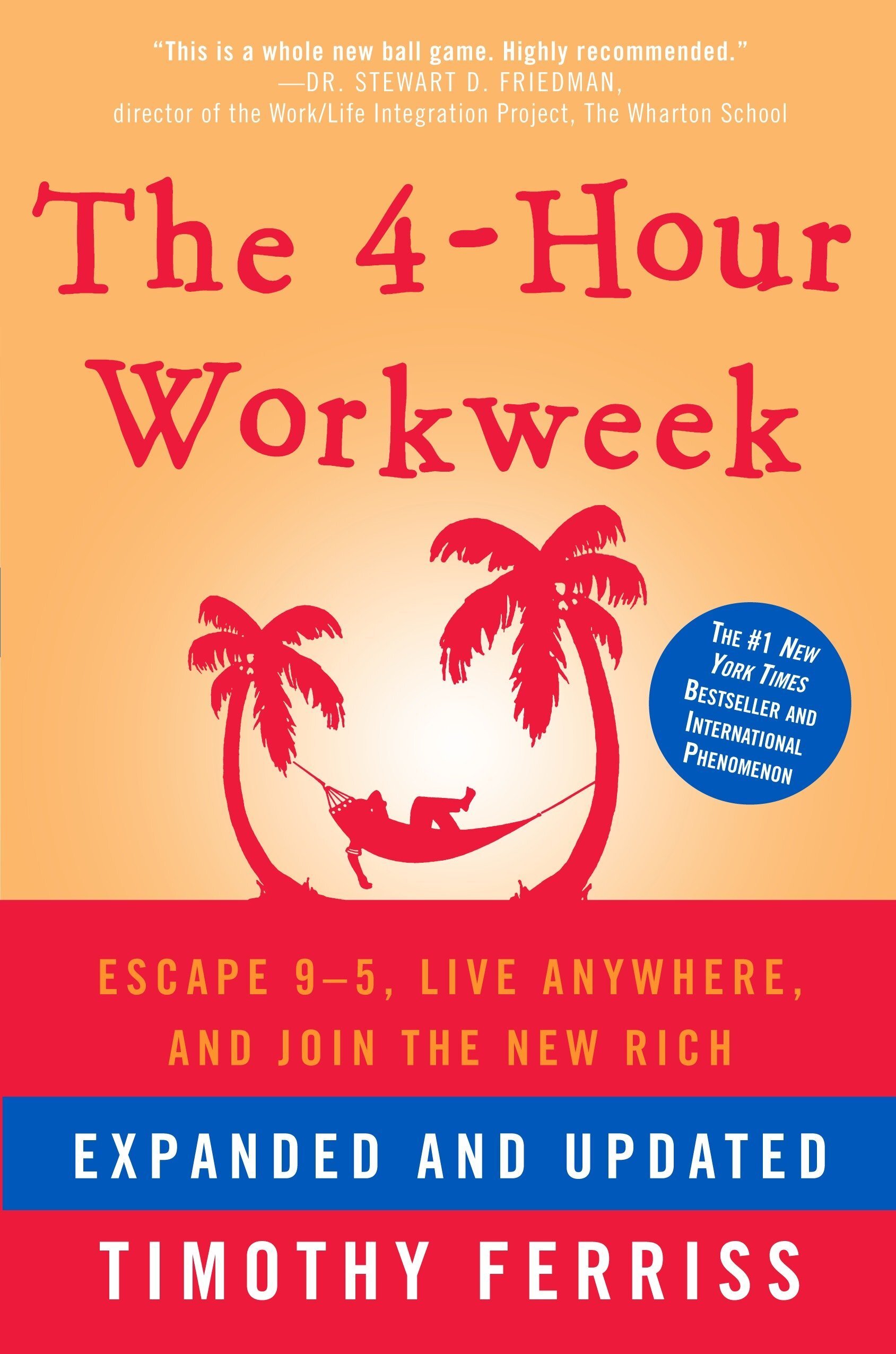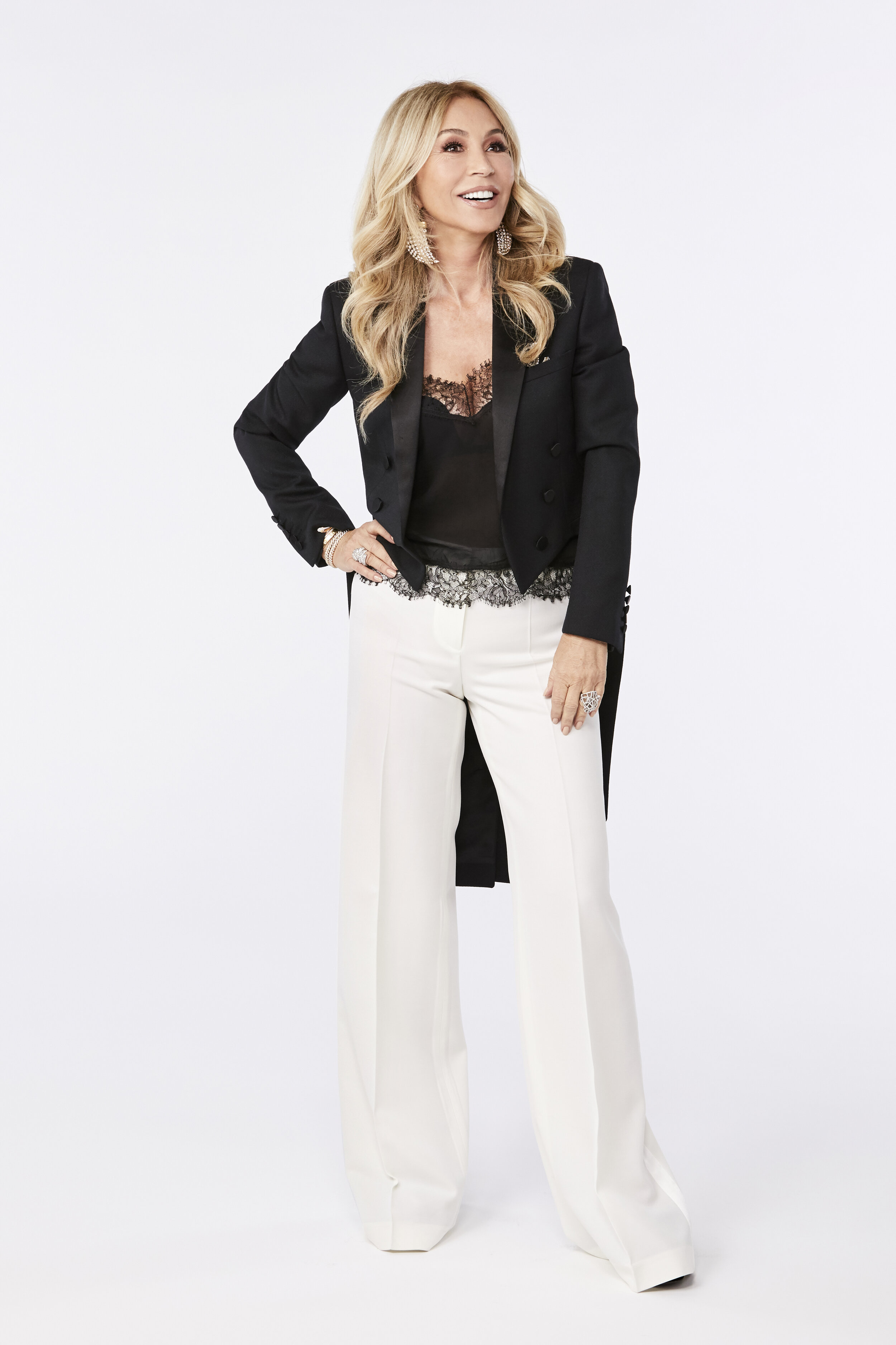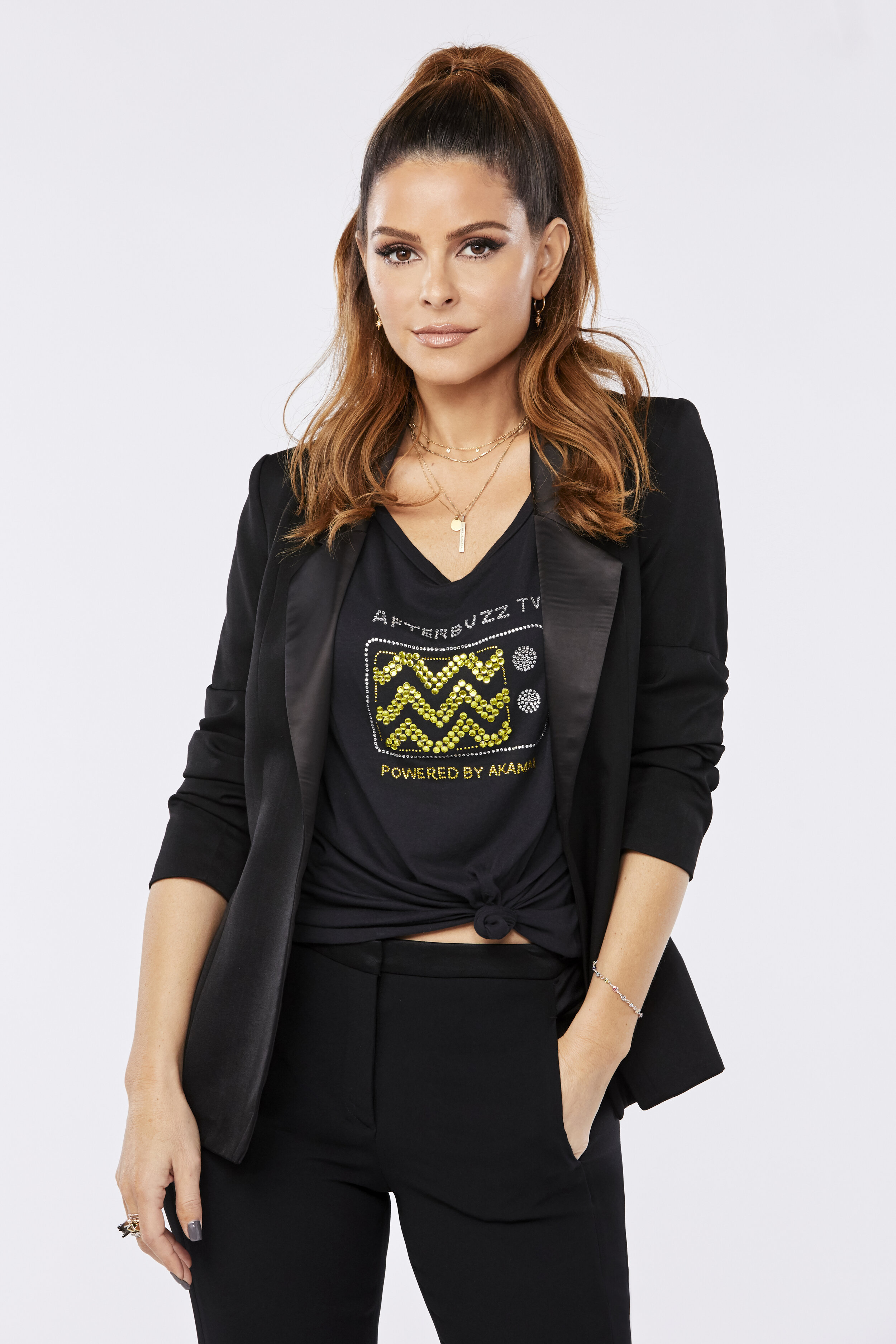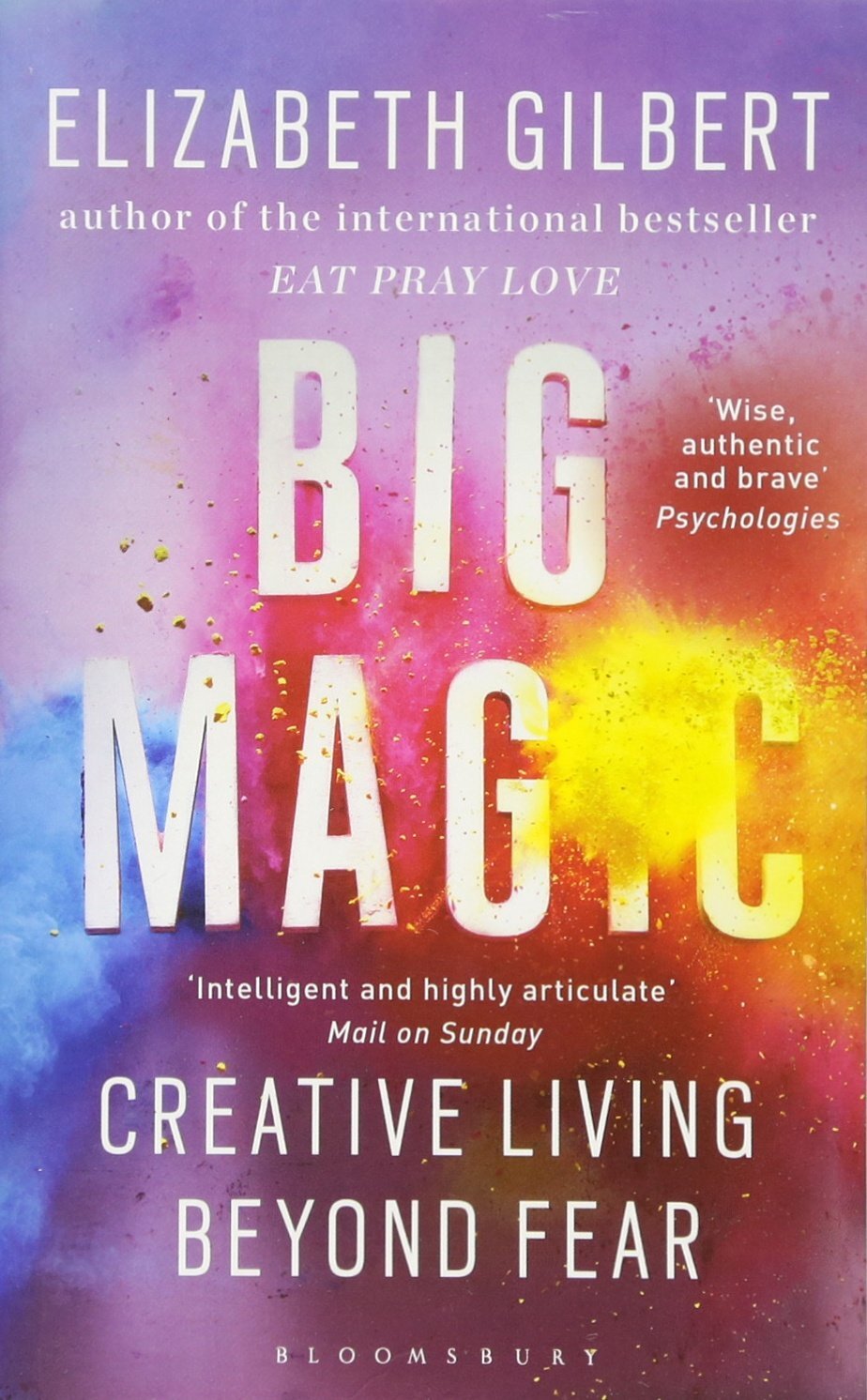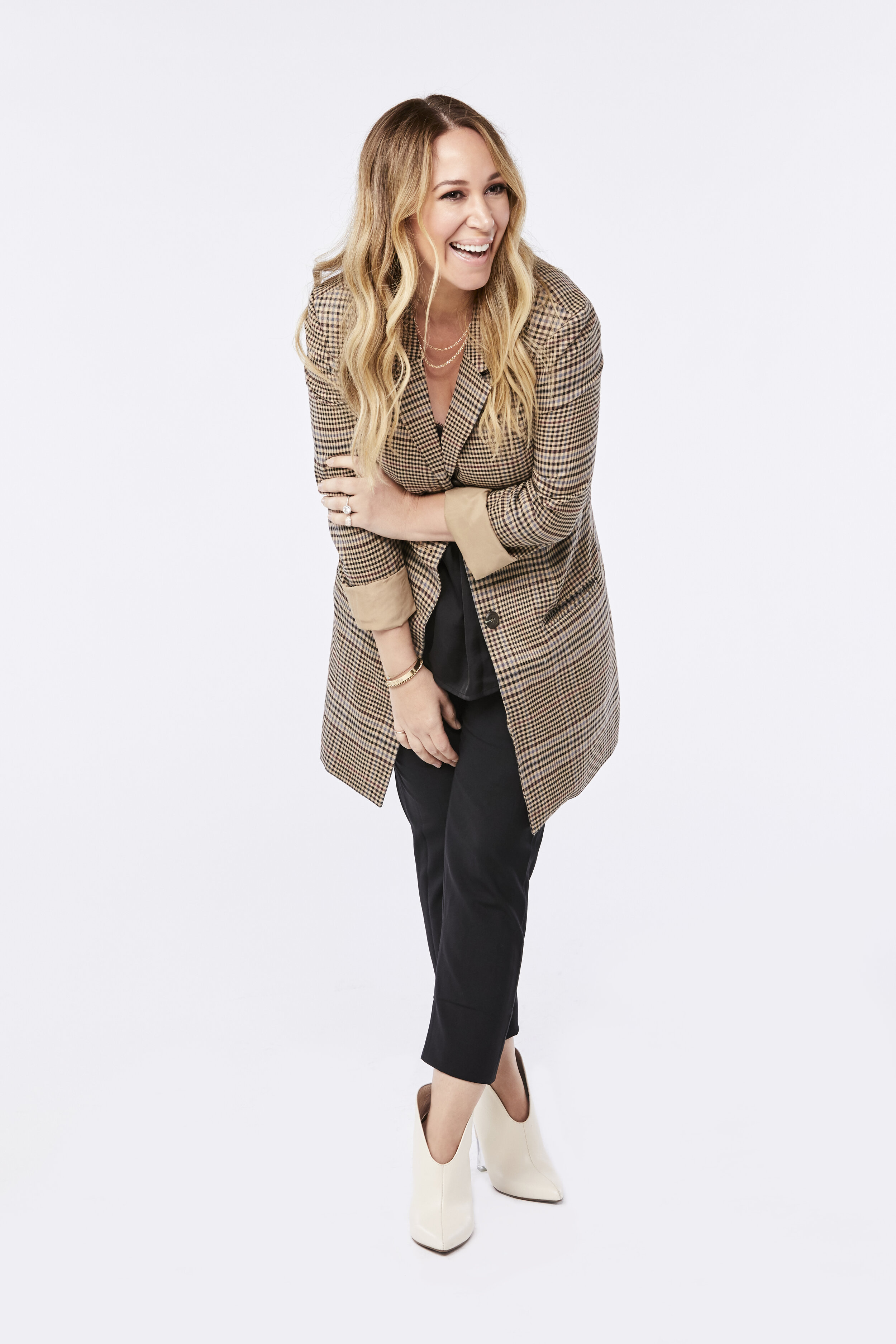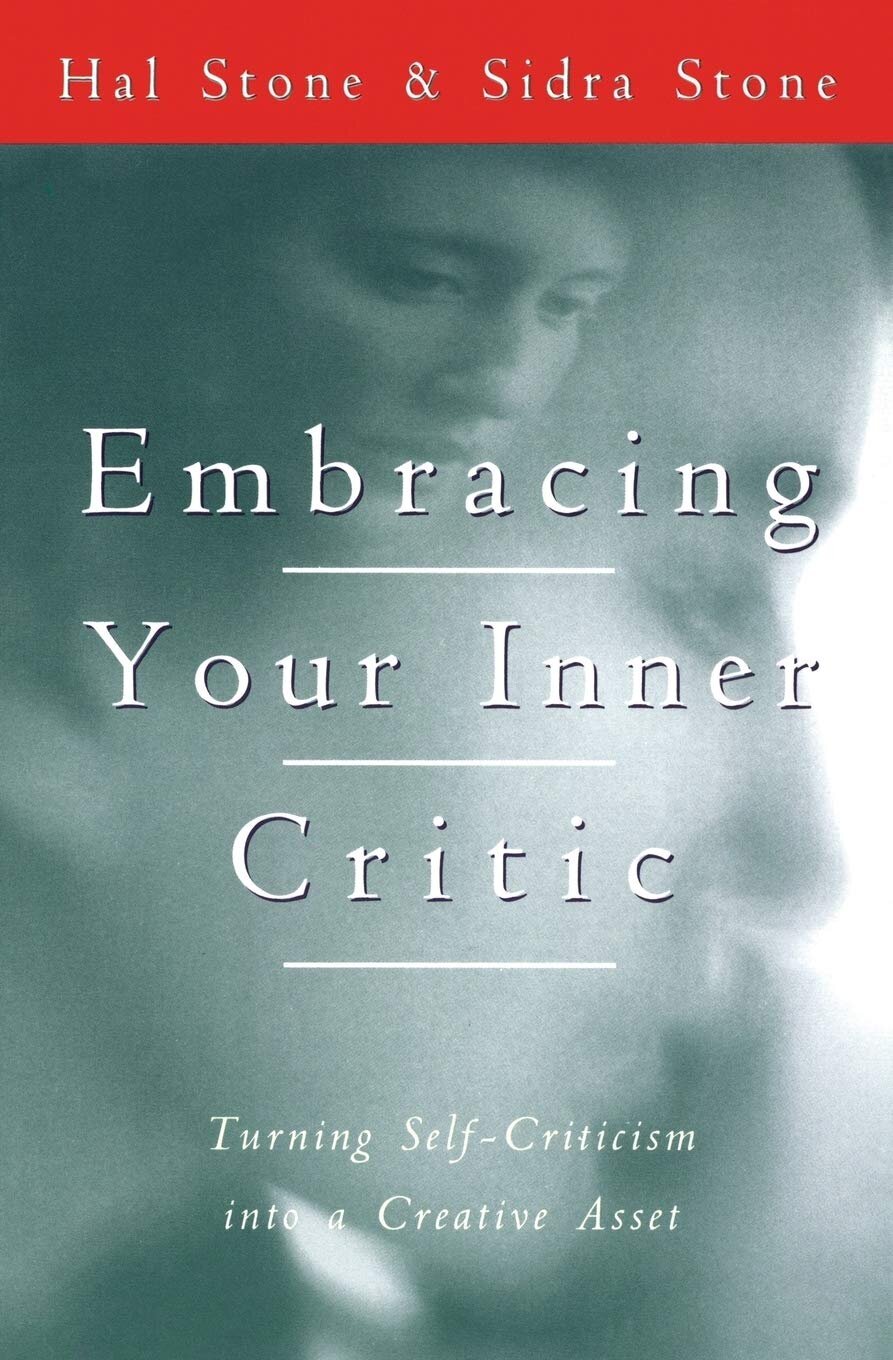4 Unexpected Ways to Make Mondays Less Manic and More Productive
It’s less about getting just anything done, and more about getting the RIGHT things done.
Photo: Plush Design Studio for Pexels
Too often we have that dreaded feeling of obligation on Sunday about all of the things we have to do, should do, or don’t want to do at work the next morning. Some people refer to them as the Sunday scaries or the Sunday blues, but no matter what they’re called, feeling anxious and stressed—especially when you’re not working—is no fun.
While Mondays can be notoriously manic, and ending the day with no real work accomplished is definitely a possibility, it doesn’t have to be that way.
In fact, they can be quite productive, which is less about getting just anything done and more about getting the RIGHT things done—the stuff that will help you grow your expertise, your brand, your career, and your business’s bottom line.
So if the weekend has been feeling five days too short, here are some tips to get you excited for your work week.
1. A PRODUCTIVE MONDAY STARTS ON FRIDAY.
Instead of shutting down your laptop early on Friday and daydreaming about how you’ll spend all of your free time, take 10 minutes to debrief how your week went.
Make a list of:
Your wins. What went really well? Make sure you celebrate these and enjoy them.
Unaccomplished tasks. Are they important enough to be carried over to next week? Does it make more sense to delegate them to a team member? Or is it no longer important at all?
Which situations/tasks feel challenging. A great starting point when writing this list is to think about what you’ve been procrastinating on. Oftentimes, just by writing it down, you’ll see why it’s been so difficult and will be able to understand what you need to move forward.
Who you want to connect with next week? The success of a small business is all about the community you surround yourself with, so make a note of who you want to reach out to next week and cold-email.
By taking time to review what worked and what didn’t, you can be mindful of your priorities, understand how you can improve your workflow, and get a better idea of what’s been standing between you and that big goal you want to achieve.
2. HIT THE PAUSE BUTTON.
In the early days of my business, I remember being at war with my need for sleep and my ambition to grow my business. I know that many of you feel that same way, especially if you love what you do—but the number one thing you need to have if you want to create meaningful work in this world is endurance. The most effective way to build that is through hitting the pause button.
Take the weekend to practice self-care in whatever form is best for you—go for a walk, reconnect with family, or read that novel that’s been collecting dust on your nightstand.
3. DEFINE HOW YOU WANT TO FEEL.
Ask yourself these two questions:
How do I want to feel on Monday?
How do I want to feel on Friday when the week is over?
When you take some time for this kind of self-inquiry, you can get crystal clear on what you need to make your week work for you. Visualize your Monday morning with you feeling whatever emotions you chose—excited, focused, passionate—and then visualize what you’ll feel like Friday afternoon.
Visualization is a proactive way to help you have more control over your workweek instead of allowing you to passively get by in a stress-induced state.
4. SAY “NO.”
While many of us struggle with saying “no,” it’s a critical component of increasing productivity. Think about what tasks you dread come Monday morning or during the week and figure out how you can stop doing them.
You can split this list into two sections:
What you are able to stop doing today?
What are you going to stop doing in the future?
Some things take a little more work to let go, delegate, or outsource. But when you commit to no longer doing things out of obligation, you’ll find that you have more free time to spend on work that actually matters.
Mondays don't have to be manic. They can be our most productive day of the week if we plan for them. Instead of spending your Sundays dreading Monday, take these 5 steps and put them into practice. You'll be amazed at how quickly your view on Mondays turns around!
About the Author: Tara Newman is a Leader of Leaders. Through her podcast, The Bold Leadership Revolution as well as her association, The BRAVE Society, she supports leaders as they embrace their ambition and leave the grind behind. Using decades of entrepreneurial experience and a Master’s in Organizational Psychology, Tara is uniquely qualified to teach leaders to run businesses without sacrificing their health, relationships, or integrity by establishing behaviors, habits, and rituals aligned with their vision of success. Connect with Tara on Instagram @thetaranewman and listen to the Bold Leadership Revolution Podcast on her website.
This story was originally published on May 12, 2019, and has since been updated.
MORE ON THE BLOG
I Have Been Working From Home for Years—This Is How to Do It Successfully
“I totally use my phone as a procrastination crutch—it's incredibly helpful to just have it out of sight, out of mind.”
Photo: Lisa Fotios for Pexels
Given that many companies are implementing work-from-home policies to help flatten the curve and prevent the spread of COVID-19 (Create & Cultivate included!), we decided to reach out to some real work from home-office pros to find out how it’s done. Because, as enticing as working from home sounds in theory, it takes a surprising amount of discipline to stay productive and on-task with all the distractions that come with being at home (we’re looking at you, Netflix, pile of laundry, and sink full of dishes).
Ahead, six full-time WFH experts—spanning a senior fashion and beauty editor who’s been working from home for 7 (!) years to an editorial director who’s been working from home for 2 1/2 years to an acclaimed author who’s been working from home for just 8 months—share their tips and tricks for staying motivated and productive while working from home. Keep scrolling to find out how to establish a morning routine that will set you up for success and how to wind down and disconnect at the end of the day.
What time do you wake up? What’s the first thing you do upon waking?
I usually wake up between 6:15 and 6:30 am, depending on how many times I hit the snooze button. It's a habit I'm trying to break, but the first thing I do when I wake up is check my phone. My office's HQ is in New York, so by the time I get up, I've gotten a handful of emails and messages already.
Can you walk us through your morning routine? How does it set you up for a successful and productive workday?
I'll have my morning coffee, turn on NPR to listen to the news, and continue checking my emails and, yes, Instagram. I aim to get to the gym by 7:30 am unless I sign up for an earlier Barry’s or SoulCycle class. Checking my emails and my schedule and fitting in a workout in the morning put me in the best mindset for a successful and productive day. If I don't get a workout in, I'll spend the whole day thinking about how I'm going to squeeze it in later. I feel like it's my way of meditating and having "me" time before what's usually always a busy day.
“When you work from home, it’s easy to just plop onto the couch with your laptop, but I make it a point that the couch and the TV are off-limits during the workday.”
Do you have a dedicated workspace in your home? What helps you stay on task and protect your time from cleaning the house, doing laundry, or running errands while you're WFH?
I do and I think that's really important! When you work from home, it's easy to just plop onto the couch with your laptop, but I make it a point that the couch and the TV are off-limits during the workday. Making a to-do list and a rough schedule keeps me on task, as well as scheduling in breaks because realistically, I'm going to throw some laundry in or pick up some lunch. But as long as I allot myself a small window of time to do those things, then I don't feel guilty about it — it's just part of my schedule.
How do you prevent work burnout? How do you stay motivated and productive throughout the day?
After working from home for 7 years, I still struggle with this. It's really hard to disconnect at the end of the day from work because I work where I live! I really try to make an effort to turn my laptop off and not check my work emails after 6 pm, but I have to say, it's really impossible in the line of work that I'm in. But something I have gotten a lot better at is not working or responding to work emails during the weekend. That has really helped me avoid work burnout.
How do you wind down and log off at the end of the day? How do you separate your work time from your free time?
I make sure my laptop is out of sight! I take my dog for a walk, I cook, I have a nice, phone-free dinner with my husband, I call a friend. Separating work time from your free time is really about making a schedule for yourself and sticking to it, including when to stop working.
Nicole Lesmeister, Writer & Editor
WFH Experience Level: 3 years
What time do you wake up? What’s the first thing you do upon waking?
I wake up around 6:30 am. During this uncertain global situation, I’ve been trying to let myself wake up naturally and get all the sleep I need, but I go to bed around 10:30/11 pm, so my internal clock still gets me up at that time. The first thing I do is (avoid my phone for 30 minutes to an hour) scrape my tongue and do 5-10 minutes of oil pulling to deep cleanse, Ayurveda-style. Wellness truly begins in the mouth!
Can you walk us through your morning routine? How does it set you up for a successful and productive workday?
I then have a tall glass of warm water with lemon, because when you dehydrate overnight, your brain actually shrinks by 20%! Gotta lube up the ol’ noggin. I brew a pot of hibiscus tea or make a matcha if I’m feeling groggy and have a little quiet time with a book or just with my thoughts while I sip it, before I do some movement.
Depending on the day, I might do a HIIT or some yoga. I have a go-to flow, but when I feel like mixing it up, I’ll look up a Yoga With Adriene video on YouTube. She has a ton of really great free videos, and there are always video workouts on ClassPass you can do at home, too!
Moving in the morning is really crucial to me for feeling energized throughout the day and avoiding a wandering mind as soon as I open my computer. It gets the blood pumping and something about a good sweat first thing just makes me feel strong and powerful.
I do some vigorous dry brushing afterwards, hop in the shower, and make a simple breakfast– my favorite is soft scrambled eggs with some sautéed greens like dandelion and kimchi.
“I schedule little breaks, so I try to do a significant amount of work on something before I make an afternoon snack, or go to pilates, take a walk, or run to the grocery store. It’s all scheduled in, so I’m not wandering away from work on a whim.”
Do you have a dedicated workspace in your apartment? What helps you stay on task and protect your time from cleaning the house, doing laundry, or running errands while you're WFH?
I have a desk where I always start work, but after I take a pause for lunch I always find myself rotating to sitting at the higher bar area of my counter. I love the afternoon sun that seat gets; it’s a comfy perch and I feel productive there.
I rely on my daily planner from Oh Deer so much. It’s organized perfectly for me with an objective section, urgent section, list section, notes, and even a little space for doodles (!). I reference my Google calendar to see if I have any calls or meetings scheduled, and make a detailed list here right away, listing them in order from top priority to lowest priority of the day. I do this because I like to make an ambitious list that is still realistic, so if my day doesn’t go as perfectly streamlined as planned (they rarely do, right?) then at least the major objectives are taken care of.
One thing I make sure to do so that I avoid being distracted by errands and house tasks is to add them to my list if I need to do them. I decide what day I can squeeze them into or what day it makes the most sense, and stick to a day and time that I do them.
How do you prevent work burnout? How do you stay motivated and productive throughout the day?
I set tiny goals for myself, or little deadlines throughout the day. Like, “Let’s do a chunk of this client until noon, and get it done” (or a ¼ of the way done, depending on the project size and deadline, etc). I also schedule little breaks, so I try to be done with something or do a significant amount of work with something before I make an afternoon snack, or go to pilates, take a walk, or run to the grocery store. It’s all scheduled in, so I’m not wandering away from work on a whim.
I also cut myself off from working too late if I have a day in which I start work early, which is ideally most days. When you WFH, it’s easy to feel like you work a 15 hour day when you don’t account for or schedule in the typical distractions… but even in an office no one works eight full hours. About five true, solid, productive hours a day is typical for the average human.
If I have a deadline that day, I might work a little later, but essentially I give myself a cut-off time to make dinner and that lights a fire under my own a$$ to get what I need done at a decent time (5 or 6 pm) so I’m not burning out my retinas with blue light into the evening. No one is producing pure gold after dilly-dallying on their computer all day and into the evening anyway. My clients deserve my best self.
How do you wind down and log off at the end of the day? How do you separate your work time from your free time?
Carving out that cut-off time to prepare a nutritious but thoughtfully tasty meal is my ultimate act of self-care (and love language to my S.O.). It’s meditative, resetting, and gives me unwind time after to rest and digest so I can sleep well and be productive again the next day! Sometimes I’ll start my to-do list for the next day in my planner if I’m feeling juiced about it, but most often I just prep the kitchen for the next morning, set out my tea, fill the kettle. Stuff like that.
Depending on the intensity of the movement I did in the morning, I’ll usually try to take a little walk after dinner or some light stretching or foam rolling. Being a writer requires a lot of sitting, so making sure I move my body in intervals throughout the day keeps me from feeling tight and weighed down by my own poor posture (lol working on it) and gravity.
Because my S.O. and I have our shows we like to watch together for some cuddle time on the couch, I always make sure to read a little before bed in some warm light. Gotta allow the eyeballs some non-screen time so that my circadian clock can recalibrate! About 30-40 minutes is lovely, but sometimes it only takes me 15 to drift off.
Kelly Dawson, Freelance Writer and Editor & Editorial Director, Semihandmade
WFH Experience Level: 2 1/2 years
What time do you wake up? What’s the first thing you do upon waking?
I wake up around 7:00 am. My alarm is on my phone, which has been a habit I've been meaning to break for a while. But I do keep my phone on the opposite wall, away from my bed, so I have to get up to turn the alarm off. The first thing I do when I wake up is open my blinds, open the window, breathe in the fresh air, and make my bed. Yes, I make my bed every morning, and I do think it helps me start the day on a good note.
Can you walk us through your morning routine? How does it set you up for a successful and productive workday?
Ideally, my morning routine goes like this: I have breakfast, which is shorthand for I drink a strong cup of coffee with food. I watch a few minutes of CBS This Morning while I eat, change, and then do about a half-hour or so of stretches, weights, or cardio—I alternate the days to make it more fun. After that I get dressed, which is always an interesting topic for people who work from home. I know that it's usually perfectly fine if I wear sweatpants, but for the most part, I pick out an outfit, do my hair, and maybe put on makeup. It's nothing that doesn't take 10 minutes or so. I find that if I don't get dressed, I'm not as focused.
Do you have a dedicated workspace in your home? What helps you stay on task and protect your time from cleaning the house, doing laundry, or running errands while you're WFH?
I have a desk that I work at every day, and I work between 8:30 am and 6:30 pm, give or take. I think the thing that really helps me stay on task is a day planner. Every night before shutting work down I write a to-do list of all the things I need to accomplish for the next day, and I split it into columns. The left side is for the big stuff I have to do—write a story, do an interview, whatever—and the right side is for all the smaller things to get out of the way, like emails to send. I do the hardest ones on the list first, while the caffeine is still flowing, and then move on to the easier ones. I try to keep the list reasonable so that I don't feel panicked about completing everything. And to be fair to myself, whatever doesn't get done carries on to the next day. The goal is to keep from scrambling on Friday, which thankfully hasn't happened yet. I should say that most of my work-from-home schedule is on a weekly basis, which is why I can play with things a little.
As for email, I only check it at the start of the day, before lunch, and then right before I close up shop. I usually pretend I don't have a TV after breakfast, and I keep my phone either off or out of sight unless I'm using it for work. If I didn't do this it would be a slippery slope into Bravo and Instagram binges.
I don't necessarily think it's a bad thing to do laundry at home during "work hours" if you can swing it. I sometimes use it as a great gauge of time. For instance, like most people, my inbox is a never-ending black hole of notifications. But, I know that my washer takes about an hour to do a standard load. So that's how much time I give to answering emails before throwing things in the dryer and moving on to actual work. The same thing goes for cleaning and errands. If I'm stuck on something, I clean for a bit, run a fast errand, or go for a quick walk. That helps me think things through without staring blankly at my computer or scrolling some site. I still do that, I'm not a robot, but I try to be very aware of how I spend my time.
When you're in charge of your own work schedule, you can—and should—be flexible. But that flexibility has to have boundaries so that you don't get distracted. If you're more of a morning person, then get up earlier: It'll mean every afternoon can feel like a weekend. If you're more of a night owl, sleep in: It'll mean you can have slower mornings. But tell yourself that you're working, you're not just hanging out at home, and you need to plan accordingly. Of course, I'm saying all of this without children to worry about, which will obviously add a layer of complication to everything. As far as my universal advice goes, just try to be kind to yourself as you figure it out, and do your best to be intentional. I started my work-from-home life as a morning person, spent some time as a night owl, and now I'm in the middle. There are some days that completely get off track, and that's fine too. You'll get back on track tomorrow.
“The thing that has really helped me successfully work from home, minus a day planner, is my community of office and freelance friends. I check in with them daily, and we either tackle a work problem together or just send funny things to each other. ”
How do you prevent work burnout? How do you stay motivated and productive throughout the day?
The thing that has really helped me successfully work from home, minus a day planner, is my community of office and freelance friends. I check in with them daily, and we either tackle a work problem together or just send funny things to each other. That helps me feel like I'm not in a little bubble, even if the messages come in little bubbles. On the good days, I'm motivated and productive because I'm really into the work I'm doing and it's all coming together. On the bad days, I motivate myself with things like, "Ok, if I finish this task then I can have some candy or read the new magazine that came in the mail." There's also something to be said about not checking something off my to-do list. Only I would know, but that's enough of a motivator for my type-A personality. If you need someone to hold you accountable, my community also has "motivation buddies." We pair off, and our buddy knows what we need to accomplish and our ideal timeline. Then we check in with each other on how the project's coming along and what kind of support we need to make it happen.
Work burnout is a real possibility when instead of an in-the-flesh boss, there's just this omnipresent feeling of a boss. That feeling can give you the idea that you have to answer all the emails and do all the things right this second, because this omnipresent "boss" can feed off the guilt and anxiety you have about being at home. First off, working from home is still working, and it doesn't need to be qualified. Working from home is worthy of respect, and it's how a third of the American workforce made its living before the pandemic. At this moment in time, joining our ranks is keeping everyone safer. If you look at working from home as "less than," then you run the risk of wearing yourself out because you're trying to prove that you're just as productive as someone in an office. And we all know a certain someone in an office who makes that thought untrue.
When feelings of burnout happen to me, I've learned to just let it happen. I try to do the things I have to do for the day, but the rest, I put on pause. No one is going to get mad at you if you don't respond to their email right away, and when you do, it will still find them well. Shut your computer down, keep your phone off, and lay down for a while. Then, call a friend and tell them how you're feeling. Then, make some nachos. Then, listen to a happy song. Maybe two happy songs, depending on what you need. If it's small-scale burnout, it'll pass. If it's big-time burnout, don't be afraid to seek professional help, if you can.
How do you wind down and log off at the end of the day? How do you separate your work time from your free time?
This is a tough one for me, because if I'm writing and in a groove then I don't want to stop. But the honest answer is: I get hungry. I usually stop working when I need to eat dinner. I make a note of where I wanted to go with whatever thought I was working on, and then sign off. Sometimes I'll write after dinner, usually if I'm on a deadline. But usually once I leave my desk at night the work day is over. Lately I've been trying to separate work and dinner with a cool-down walk in between, so we'll see how that plays out in the coming weeks.
Another honest truth is that it's tough for me to balance work with free time! I've tried to be better about it since the start of this year, but I fail at it a lot. If there's a quote that's in my head whenever I do fail, it's what Toni Morrison's dad told her when she was struggling at her first job. He said, "Go to work, get your money, come home." Home is where the work is, so it's complicated. But home is where life is, too. And right now, when everything feels uncertain, I'm trying to remember to "come home" to my life mentally and physically. I need the balance probably more than ever.
Kamari Chelsea, Strategic Media Consultant
WFH Experience Level: 1 1/2 years
What time do you wake up? What’s the first thing you do upon waking?
Typically, I tend to wake up around 7:30 am. If you're working from home with your partner (as I am), it's essential that you try to get on the same page with wake up times to avoid feeling envious or lazy when you see your partner sleeping in.
The first thing I do when I open my eyes (or sometimes even before) is repeat an affirmation of gratitude to myself. When you're self-employed and always hustling to make things happen, mental health is more important than ever. It's critical to start your day being thankful for what you already have so that you aren't overcome with a "lack" mentality (especially during these times).
Can you walk us through your morning routine? How does it set you up for a successful and productive workday?
8 am: My morning routine firmly begins at 8 am because any later makes me feel like I've missed opportunities. I start the day with a hot shower, skincare routine, and picking out a cozy work-from-home look that is presentable enough for any video conferences I may have scheduled. Then, I make a two-minute commute to my office.
9 am: I created a mediation and yoga corner in my office for when I need breaks, but I also use this corner to do a morning meditation and stretch. I set a timer for 10 minutes or play Jhene Aiko's Trigger Protection Mantra for its sound healing qualities; after this, I typically feel safe and ready for what the day may bring.
9:10 am: I make a quick protein-packed breakfast for myself and my husband (usually eggs and a Vanilla Super Coffee). On Fridays, I used to cheat and drive straight to the Starbucks drive-through. Lately, I've been making my own "Starbucks" moment at home using my favorite plant-based coffee mixes.
9:30 am: I log on and feel ready to take on the day!
Do you have a dedicated workspace in your home? What helps you stay on task and protect your time from cleaning the house, doing laundry, and running errands while you're WFH?
One of the best investments I have made since I began working from home is converting one of the rooms in my house into a dedicated office space! It allows me to feel like I have a place to go every day to work and a place to leave when I need to separate work from my home life. I close the door to my office when I'm done for the day or on weekends, and I get to have my own life, away from the energy of work.
This way, during my business hours, I am unable to see laundry, the kitchen, television, or any other distractions. And, when I'm watching Netflix or unwinding with a glass of wine, I don't have my laptop and work notes beckoning me to come back to work.
Separation is a huge aspect of maintaining your mental health when working from home. Even if you find a corner that's set apart from your personal space (not in your bedroom), it will make all the difference by creating structure.
“When you’re self-employed and always hustling to make things happen, mental health is more important than ever. It’s critical to start your day being thankful for what you already have so that you aren’t overcome with a “lack” mentality (especially during these times).”
How do you prevent work burnout? How do you stay motivated and productive throughout the day?
Admittedly, when I first started my business, I burned out pretty hard. I was continually working because I felt the pressure to be "on" since my life was now intertwined with my work. Then, I had a conversation with my Dad and he gave me great insight. He said, "If you earn $100,000 in business, but work 100 hours a week, you're essentially making less than $20 an hour with no benefits." I realized then that I have to value every hour of my life because time is our most precious commodity. It was then that I realized to start capping my hours on specific projects based on the rates I was charging. If you're a full-time salaried employer, this should be even easier—set a rule to shut the computer by 6 pm at least three days a week. You'll be giving yourself an instant hourly raise!
To stay motivated and productive, I use standard systems, including a whiteboard with my daily to-dos. I break them up and task myself with achieving half before lunch and half after lunch. I'm strict about being on “Do Not Disturb” during peak working periods, and I'm BIG into not checking email constantly. Inbox zero be damned!
How do you wind down and log off at the end of the day? How do you separate your work time from your free time?
I love a glass of wine and a trashy reality show as much as the next girl! But first, as soon as I log off, I try to do something physical like spinning, walking, or lifting. This helps burn all the energy of my workday off my body.
Then (and this is admittedly a bit counterintuitive), I guzzle water, take another shower, and wind down (or shall I say, wine down) with my husband by cooking dinner. We rarely eat out, and cooking is a creative task that allows me to feel like I have moments in my day to look forward to doing whatever I want and being super inventive!
Amanda Montell, Writer & Author of Wordslut: A Feminist Guide to Taking Back the English Language
WFH Experience Level: 8 months
What time do you wake up? What's the first thing you do upon waking?
Really late. I've become a night owl in this WFH phase of my career (it's like I'm on Hawaii's time zone now) so I find myself working best between the hours of 3 pm and 10 or 11 pm. I don't get to bed till maybe 2 am. I wake up around 10:30 am, peel myself out of bed, brush my teeth, wash my face and hands (!!!), and guzzle a coffee.
Can you walk us through your morning routine? How does it set you up for a successful and productive workday?
My morning is pretty leisurely. Because my job (writing books) is very solitary with little collaboration and few hard deadlines, I get to set my own pace. As it turns out, that pace requires a lot of warming up. Unless I have to interview a source early in the morning, I start my day with coffee, a small breakfast, hanging out with my dog and two cats, and checking my email/socials. Then, I put on a fresh set of clothes (still loungewear, it's more of a symbol that the day has begun), plug my laptop into my monitor, and review the day's tasks.
I'm not big into fancy to-do list apps or color-coded schedules—I keep track of everything I need to do for the day in my Google calendar, and I keep my to-do list really streamlined, so I have maybe two or three big work tasks for the day (e.g., write pages 10-13 of the book, pull quotes from the latest interview transcription, call my agent). I never crowd my to-do list, because that feels like I'm setting myself up to fail. My morning routine is all about creating this sense of "I can handle today, today is going to be chill," and approaching it from that relaxed place rather than an anxious one, and usually I wind up being way more productive than I meant to.
“I never crowd my to-do list, because that feels like I’m setting myself up to fail.”
Do you have a dedicated workspace in your apartment? What helps you stay on task and protect your time from cleaning the house, doing laundry, or running errands while you're WFH?
My porch, my couch, or my dining table, where I have a big monitor that I can easily set up and takedown. I never work from bed. I'm embarrassed to say I'm kind of messy and hopeless around the house, so the urge to procrastinate by doing laundry or dishes is pretty easy to resist, haha. I'm lucky to have my dream job—I'm genuinely obsessed with writing books—so to my great fortune, self-motivating isn't all that hard. Long before I was getting paid to do this work, I was doing it anyway.
How do you prevent work burnout? How do you stay motivated and productive throughout the day?
I'm very gentle with myself! If I need a break, I take it. Just like I know eating junk food in moderation won't ruin my body because I generally eat pretty healthy, I know that in the end, having "lazy" workdays will get balanced out by having spurts of hyper-productive days. If I have really terrible writer's block, I get up and take a walk or read a few pages of a great book (in the same genre as the one I'm writing, so I don't cross-contaminate) as a palate cleanser.
When you transition to working from home, there's an awkward period where you're always questioning if you should be getting more done, but after a week or so (sometimes more, sometimes less), you start to find your groove. And of course, it's different for everyone. My old roommate who worked from home was most productive between the hours of 7 am and noon. My partner has all these time management apps he swears by. At a point, you just have to ignore the prevailing wisdom and figure out what works for you.
How do you wind down and log off at the end of the day? How do you separate your work time from your free time?
I normally see friends at the end of the day for happy hour or dinner. Wine typically marks the end of the day for me, haha. But again, I'm fortunate that my work is something I love and would be doing either way, and I actually think that in our current age, strict work-life boundaries aren't necessarily the most realistic or productive for everyone. I'm 28 and have no kids... why should I stop working at 6 pm if I'm on a roll? If I'm motivated to write for an hour at midnight, I let myself. I know my work situation won't be so flexible forever, so for now, I just let myself be sort of loosey-goosey. So far, it's working out well.
Kelsey Clark, Freelance Writer & Content Strategist
WFH Experience Level: 5 months
What time do you wake up? What’s the first thing you do upon waking?
Despite my best efforts, I am still not a morning person. I usually wake up around 8 or 8:30 am (unless I'm going to a morning workout class) and check my email first thing. Coffee and water are immediate seconds!
Can you walk us through your morning routine? How does it set you up for a successful and productive workday?
I've only been freelance for five months now, so I'm still perfecting my morning routine. There's definitely an art to it—it can be incredibly difficult to maintain self-discipline when you're WFH.
Right now, I wake up, check my email, and drink coffee in bed or on the couch, then either shower or complete some sort of small grooming routine (i.e. wash my face, brush my teeth, brush my hair, etc.) depending on when I'm planning to workout that day. I think it's important to stick to a grooming ritual, even if it's as simple as brushing your teeth and splashing cold water in your face. In my experience, this signals to my body and brain that it's time to wake up.
From there, I apply my skincare/makeup and get dressed. If I'm staying at my apartment, I usually skip makeup and apply some fancy skincare—I've really enjoyed treating my skin to serums, masks, etc. during the day since I don't have to worry about layering makeup on top.
As far as my outfit goes, it's honestly leggings and a sweater, which is something I want to work on—I very much believe that what you wear influences your mood! If I'm going to a coffee shop (not right now, obviously), I usually wear very light makeup (i.e. tinted moisturizer, boy brow, mascara) and my standard jeans, ankle boots, and a sweater/T-shirt/turtleneck. I'm based in Detroit now, but most of my work is still based in New York, so in-person meetings are few and far between (i.e. I rarely have to worry about dressing up).
Routine aside, I aim to be actively working and starting the day's tasks by 9 am with the rest of the world! As much as my night owl self would love to work a 10-7 or 8, I think it's important to be online with everyone else; I feel anxious otherwise.
“I totally use my phone as a procrastination crutch—it’s incredibly helpful to just have it out of sight, out of mind.”
Do you have a dedicated workspace in your apartment? What helps you stay on task and protect your time from cleaning the house, doing laundry, or running errands while you're WFH?
Unfortunately, my apartment is too small for a dedicated workspace (I'm moving in a month and can't wait to have a desk!). I do find that I'm more productive if I'm able to head out to a coffee shop, even for just a few hours, but obviously that isn't an option right now. Keeping myself on-task is an ongoing battle, but I have found a few tricks that keep procrastination at bay:
I generally leave Netflix/music off, unless I'm doing something more visual like sourcing imagery where I'm not bothered by distracting sound.
Reward myself with small treats, i.e. when you finish this piece or send all these emails, you can make tea or check Instagram. Small victories!
Allot a certain amount of time for each task, i.e. I'll do email outreach until 11 am, then work on this piece from 11 am to 3 pm and the source market from 3 pm to 6 pm, etc. Even if you don't finish each task, it's important to move onto the next or else you can quickly feel overwhelmed/behind. If you stay on task #1 all day, it's easy to feel like your day was a failure.
Reserve certain time slots for any errands or small chores you want to do, i.e. at noon I'll take a lunch break and do the dishes. Or when I commute home from this meeting or outing, I'll stop and grab groceries, etc.
Honestly, hide your phone. I will literally put it in another room or throw it on the other side of the couch, as crazy as that sounds. I totally use my phone as a procrastination crutch—it's incredibly helpful to just have it out of sight, out of mind.
Change your scenery after a while, even if it's just moving from your couch to a chair, or your bed to the couch, or your couch to your friend or significant other's couch.
How do you prevent work burnout? How do you stay motivated and productive throughout the day?
It's definitely hard to separate work from your personal life when you work for yourself. While I do work the occasional Sunday, I try my best to enjoy my weekends to the fullest and allow myself to take time off and relax just like everyone else. I also have direct control over how much work I take on and which projects to prioritize from a financial perspective, which is really nice. I've had a few months where I was drowning, and the next month, I was able to tweak my schedule a bit to avoid total overwhelm.
For me, just knowing that everyone else is still working and grinding it out is strangely motivating. I made the choice to go off on my own, and I want to hold myself to the same standards as everyone else in the traditional workforce. It's important to me and my self-esteem to work hard and still feel like an equally productive member of society, even if I'm working from my couch. I want to succeed at my own venture, and I have direct control over that outcome. There's no part of me that decided to go freelance so I could be lazy or sleep in, you know? If anything, the pressure and motivation to succeed are amplified.
How do you wind down and log off at the end of the day? How do you separate your work time from your free time?
This can be difficult depending on workload, but I think having an after-work activity definitely forces you to log off and signals the end of the workday. For example, my significant other usually comes over after work, so I'm forced to log off and begin my evening wind-down. This can even be as simple as going to a workout class, going to the grocery store, hanging with your roommates, grabbing a drink with a friend, making dinner for yourself, etc. Just some sort of hard stop. These post-work activities also serve as motivation to get your work done throughout the day—i.e. I want to be able to grab drinks with this person, so I'm going to make sure I get all my work done.
How Putting Your Health and Happiness First Can Improve Your Career
And benefit your company, too.
Photo: Smith House Photography
In 2016, the World Health Organization (WHO) turned their attention to a problem so severe and damaging they called it the “health epidemic of the 21st century.” That epidemic was stress. Fast-forward to 2020, and the WHO has updated its handbook of diseases to include burnout, calling it an "occupational phenomenon" characterized by "feelings of energy depletion or exhaustion, increased mental distance from one's job, or feelings of negativism or cynicism related to one's job.”
We are the first to admit that 80 hour work weeks and side hustles are the new norm. While we certainly aren’t going to be the ones to tell you to stop working your butt off if that is what you want to do, that doesn’t mean we don’t acknowledge that putting your health and happiness above your work is necessary for your general wellness. In fact, when you take care of your personal needs you may find that it benefits your career just as much as your well-being. Scroll on to find out how.
What Stress Does to Your Mind
Stress can cause physical maladies such as headaches, jaw clenching, teeth grinding, muscle spasms, heartburn, and nausea, as well as back, neck and chest pain. Even if you are a super human who doesn’t feel the physical side effects of exhaustion and stress, you might be falling victim to non-physical symptoms such as forgetfulness, disorganization, confusion, trouble learning new information, difficulty in making decisions, nervous habits and overreaction to petty annoyances. To top it all off, according to The American Institute of Stress you may also experience reduced work efficiency or productivity.
Carve Out Some “Me” Time
Everyone's wellness needs are going to be different. Some may not feel their best if they don’t take the time to cook healthy meals. Others may be strongly affected by not being able to spend as much time with their loved ones as they would like. Bookworms may feel more anxious if they can’t spend quiet time reading and escaping their troubles before bed. Think about what is important to you and what makes you feel like your best self, then carve out the time to do it. Seriously, add it to the to-do list and make sure it gets done like any other vital task.
Exercise is a great way to take care of both your physical and mental health at once. Physical activity releases endorphins in the brain and is proven to lower stress levels as well as symptoms associated with mild depression and anxiety. It can also help relax muscles and relieve tension in the body. When you don’t have time to squeeze in a workout, try having a good laugh. Laughing also releases endorphins, which are significantly more powerful than the pain-relieving drug morphine. If relieving stress and pain isn’t enough to convince you, then consider this: endorphins boost immunity which could save you a lot of out of office days come flu season.
It Benefits Your Company, Too
It would financially benefit companies to look out for their employees’ health and happiness, not to mention be the decent thing to do. In fact, workplace stress costs U.S. businesses $300 billion annually. On top of lost productivity, work-related stress causes 120,000 deaths and results in $190 billion in healthcare costs yearly. If employers value the wellness of their employees they should ensure that they are working manageable hours, taking lunch breaks, encourage time off and create a generally positive work environment.
You are entitled to take a breather, play hooky, nap a day away, laugh, cry, whatever it is that will make you feel lighter. Never skip a doctor's appointment for a meeting, leave a few minutes early to make it to that yoga class, go home when you aren’t feeling well, turn off your phone when you are on vacation. If you do this you will be more creative, in control, calm, productive, focused and most importantly happy.
About the Author: Jacqueline DeMarco is a freelance writer with experience in editorial and news writing.
This story was originally published on September 2, 2017, and has since been updated.
Up next: 10 Women Who Have Your Dream Job on How They Fight Burnout, Stay Motivated, and Get Re-Energized for Work
MORE ON THE BLOG
Ask an Expert: How to Adjust Your Business Strategy During the Coronavirus Crisis, According to a Business Coach
“This is a time to be swift, but not reactive.”
We’ve been spending a lot of time at Create & Cultivate HQ discussing how we can best show up for and support our community during this uncertain time. Community is at our core, and connecting with others through one-of-a-kind experiences is what we love to do. While the world has changed, our mission has not. We’re committed to helping women create and cultivate the career of their dreams, which is why we’re proud to announce our new Ask an Expert series. We’re hosting discussions with experts, mentors, and influencers daily at 9 am, 12 pm, and 3 pm PST on Instagram Live to cure your craving for community and bring you the expert advice you’ve come to know and love from C&C. Follow Create & Cultivate on Instagram, check out our Ask an Expert highlight reel for the latest schedule, and hit the countdown to get a reminder so you don’t miss out!
Photo: Courtesy of Gretchen Jones
In times of crisis, businesses are put to the test—supply chains are disrupted and profit margins are compromised. And the COVID-19 crisis is certainly no exception. As our founder and CEO Jaclyn Johnson says, a company’s success comes down to how it pivots and responds during times of great uncertainty. However, as one of today’s Ask an Expert pros reminded us, “Now is the time to be swift, not reactive."
For some #realtalk on how to pivot a business, manage expectations, and lead with purpose during a crisis, we tapped Gretchen Jones, a strategic business advisor (she advises our CEO), for a special installment of our wildly popular Instagram Live series, Ask an Expert. Read on for three things you should know about adjusting your business strategy right now. If you missed the conversation, you can watch it in full here, and be sure to tune into our next Ask an Expert conversation on Instagram Live.
1. I want to be proactive during this time of quarantine—what can I do to reach my business growth goals and hit the ground running when things go back to normal?
“Achieving business goals right now is theoretical. More than thinking about growth, work on managing a healthy relationship with your business, not the potential capabilities ahead of you. Look at this slowdown as an opportunity to rise to the occasion, and look at initiatives that you’ve wanted to dive into but haven’t had the time to until now.“
2. I’m a small business owner and I don’t know how much longer I can afford to pay our staff while we’re closed during this time of quarantine. What advice can you share?
“Being a good boss sometimes means that moving through the pain [and going through with layoffs] is doing what is right for your community because you acted with integrity. You holding onto your staff because you’re afraid of laying them off in the future is going to complicate they’re ability to gain access to unemployment benefits. Take care of them now so that they will want to come back and work for you.”
3. How can I be a better, more supportive leader for my team, especially now that we’re all working remotely?
“The first thing is communication. Lead with humanity first in all communication. And, set goals. Real goal setting is about making sure your team knows that they have purpose and value and make sure that the expectations are really clear. Set benchmarks or KPIs (key performance indicators) so that you have really thoughtful ways of checking in with your team. Most importantly, hold yourself accountable by being better and more communicative with your staff.”
About the Expert: Gretchen Jones is a strategic business advisor and public speaker, as well as an award-winning design director, ambassador for sustainability, and NLP practitioner. She works with entrepreneurs and companies to develop future-minded, visionary approaches to ourselves and our work. Her methodology brings a directional, mindful lens of reflection to processes and belief systems, inside and outside of our businesses.
Gretchen has generously offered Create & Cultivators a special discount. Use the code gJLOVESC&C for 33% off Critical Conversations for the next three months. The code expires June 1st and can be up to three times.
Tune in daily at 9 am, 12 pm, and 3 pm PST, for new installments of Ask an Expert.
Follow Create & Cultivate on Instagram, check out our Ask an Expert highlight reel for the schedule, and hit the countdown to get a reminder so you don’t miss out. See you there!
The First Four Things You Should Do EVERY Work Day
Eat the frog, get ahead, and hit all your goals.
If you're working from home and wondering where the week went, don’t worry—we're wondering the same thing. But instead of sitting here thinking about what we haven't yet achieved, we're sharing tips on how to take the next day by the horns. (World domination from there—who’s with us?)
If you're currently lacking in the productivity department, grab some coffee and start making these successful morning habits part of your routine. Ahead, we’re outlining exactly what you need to do to eat the frog, get ahead, and hit all your goals. Feeling pumped? Keep scrolling for more.
1. Eat the frog.
Mark Twain once said that if the first thing you do in the morning is eat a live frog, you can go through the rest of the day knowing it can’t get any worse. That doesn’t mean you have to go and switch your soy latte for a frog—it simply means you should do your most important assignment first. Studies have shown that you have the most willpower in the morning, so harness your motivation mojo and master your most important task bright and early.
2. Scan for red flags.
Productivity experts recommend that you not spend your morning reading and answering emails (it can totally derail your good AM intentions). Focus your morning on what you need to get done—not the little things people need from you. Quickly scan your emails to see if there is anything high-priority that will affect your goals for the day, then keep the trains moving. As Julie Morgenstern, author of Never Check Email in the Morning, told HuffPost, “Those requests and those interruptions and those unexpected surprises and those reminders and problems are endless… there is very little that cannot wait a minimum of 59 minutes.” So, if you want to be more productive throughout your day, step away from your inbox in the morning. Seriously.
3. Rally your to-do list.
Organizing your to-do list might sound like yet another thing to add to the chaos, but doing so is like creating a compass to get you to that golden “closing time” hour. How do you decide which task is “more important” than another? Use time management and productivity expert Laura Vanderkam’s advice and quickly ask yourself five questions: Does it take a step toward a big professional goal? Does your boss say it’s a top priority? Does it make you money? Does it lighten your mental load? Can it only be done today? Once you have your list organized, break down any big tasks into specific actions you’ll take to accomplish them.
4. Check-in with your team.
It’s small but mighty: Say hello to your colleagues in the morning. Not only will it help you start the day in a good mood, but they’ll be much more likely to help a friendly colleague than a Grumplestiltskin if you need help putting out a fire later that afternoon.
So, there you have it: The four things you should do to accomplish more throughout the workday. Drink coffee, eat a metaphorical frog, and get to work.
About the Author: Elana Lyn Gross is a freelance journalist and founder of the personal and professional development website, Elana Lyn. She has interviewed hundreds of businesswomen for her Career Profile series. Follow her here: @ElanaLynGross on Instagram and @ElanaLyn on Twitter.
This post was published on February 8, 2019, and has since been updated.
MORE ON THE BLOG
6 Tips for Creating a Productive Work-From-Home Environment
Become a boss at working from home.
Photo: Polina Zimmerman for Pexels
Working from home. It sounds great in theory, but it actually takes a lot of discipline to establish a routine that makes working from home productive and fulfilling. Given that many companies are currently implementing work from home policies to help flatten the curve and prevent the spread of COVID-19, I feel compelled to share my tried-and-true tips for creating a productive work-from-home environment.
As someone who’s been freelancing and working from home for the past five years, I’ve gone through all of the ups and downs WFH life can present—from feeling lonely and needing to talk to someone to needing to get out of the house and take a break (while practicing social distancing, of course). Scroll on for my tips on how to create a dedicated work space, set office hours, eliminate distracts, and more.
Create a Dedicated Work Space
Find a place in your home that you can dedicate to work. This will be different for everyone, and while I highly encourage having a desk, a dining room table or breakfast bar are great substitutes.
I don’t recommend your workspace be on your couch or on anything where you can recline. While I love being on my laptop and having my feet up on my couch, I am never as productive as I am when sitting upright.
When choosing a space for work in your home, try to find an area that has the following:
Natural light
Quiet
Minimal household distractions (dirty dishes in the sink, children’s toys on the floor, etc.)
Find a space that you can check-in for work and check-out for everything you’d typically do while at home.
Set Office Hours
As a freelancer, it’s incredibly important to have office hours. Not only to manage client expectations but to give yourself structure.
Setting office hours should empower you to develop a routine for yourself like you typically would if you had a 9-to-5 office job. You’d wake up in the morning, enjoy your morning cup of coffee, maybe squeeze in a yoga class before you get dressed, and head to work. The same should be taken into consideration when you work from home.
Freelance life is supposed to allow you to do all of the things you want to do with your time. Don’t let it create an opposite effect where you convince yourself to always be on and working just because you’re able to do it from the freedom of your own home.
Eliminate Distractions
It’s so important to eliminate any distractions from your home that would take you away from getting work done. For me, I need my home to be clean - period. If the home isn’t tidy, I’m not focused.
Other distractions I try to eliminate are:
Mindless social media scrolling. There’s a difference between taking time to engage on social media to benefit your business and spending 20 minutes scrolling through videos of pigs taking a bath. Cut the scroll!
Noise. If noise distracts you (or a lack thereof), plug in your noise-canceling headphones or put on some white noise to help you regain focus.
Pets. I have two dogs who can be very needy for attention. They sleep for most of the day, but every now and then they have a tendency for loudly playing with each other while I’m on client calls. When that happens, or if I think it could happen, I put them in their beds in our master bedroom and shut the door. It’s never for long and it helps calm them down - and helps prevent me from having to apologize to a client for the squeaky toy noises in the background.
If you find yourself being distracted by a common theme throughout your days, find a way to eliminate that distraction so you can stay focused and do your best work.
Get Out of Your PJs
We all have days where we want to stay in our PJs, but it’s important to get out of the jammies and into something that says, “my day has started.”
Most of the time I will change out of PJs and into activewear or comfortable denim. I’ll wash my face, brush my teeth and hair, put on some CC cream and deodorant, and then get to work. It’s a small effort that makes a big difference.
Talk To Someone
One of the biggest things I didn’t realize about working from home is just how lonely it can be.
You are by yourself all day and unless you have clients who love phone calls, most of your correspondence will primarily be done through email. It’s important to talk to someone; anyone. Make time to pick up the phone and call a relative or an old friend. Schedule calls with people in your network so you don’t lose your conversation skills.
I realized a change in myself probably around my second or third year of freelancing, where I would struggle with conversation because I just wasn’t having any. I’d either talk too long or too fast, have difficulty forming sentences, and just felt awkward. This is not me.
Now I talk to everyone.
I am not shy when it comes to conversation and make an effort to have a casual chat with just about anybody I come into contact with throughout the day. That’s people I pass by when I’m walking the dogs, the barista at Alfred’s, Anthony who does my nails at Olive & June, Mary who delivers our mail… AN-Y-BOD-Y.
Get Out of the House
How many of you working from home and reading this typically don’t leave your house during the workweek? 🙋 I get it.
Your home is your office and your office is your home, but it’s still important to get out of the house every once in a while. Keep yourself active and engaged with things happening in your community so you can get out of your PJs, talk to somebody, and enjoy those office hours! (You like what I did there?)
It’s important to get outside and break away from work so you can actually stay engaged in work.
When I spend hours on my computer without any breaks my mind becomes fatigued, and I become less productive. So I’ll take the dogs for a longer walk, do a workout class on my balcony, or take my laptop to the coffee shop down the road and just take in a bit of new scenery to help adjust my internal boss mode.
So if you’re feeling uninspired or having trouble getting anything done, give yourself a break and get out.
About the author: Audrey Adair is a seasoned freelance communications professional and founder of The Scope, a platform providing resources and community to freelancers and the self-employed. Connect with The Scope on Instagram and join their email list to receive your free resource, The Freelancer Starter Kit.
This story was originally published on March 5, 2019, and has since been updated.
3 Things That Are Holding You Back at Work
“If you’re not going to kick ass at work, what’s the point of spending all your time there?!”
Photo: Bru Santos for Pexels
Most of us spend half of our waking hours at work, five days a week—sometimes more! According to a recent study, the average full-time employee works 47 hours a week (yes, that’s 7 hours more than the standard 40). It’s no wonder so many of us name work as the most stressful aspect of our lives.
The good news is that with a few tweaks to your environment and brain, you can increase your productivity, decrease your stress, and advance faster than you’d expect. Based on cognitive science from a feminist POV, here are the top three ways you’re holding yourself back at work—and three solutions to start implementing today.
1. You’re underselling yourself—to your colleagues and yourself.
Imposter syndrome is no joke (even Martha Stewart isn’t immune to it). It’s also not an accident.
Women are socialized to constantly doubt themselves, underestimate their abilities, and believe that others are more qualified and talented than they are. Studies show that when women are primed with stereotypes about their abilities, they perform more poorly on cognitive and skill-based tests.
The insidious thing about this socialization is that it gets absorbed into your brain and then floats up into your consciousness as if it’s your own thoughts. So you don’t think, “Women aren’t good at project management, so I must be bad at my job.” Instead you think things like, “I’m not as organized as I should be and don’t think I’m doing a good job.” You think that because the thought came into your brain, it must be true.
Once you have that belief, your brain is constantly looking for evidence to justify it—which means you don’t show up as a confident badass who’s happy to take credit for her work, promote herself, and volunteer for new responsibilities. If you’re not going to kick ass at work, what’s the point of spending all your time there?!
The cure for imposter syndrome is to learn how to notice, evaluate, and change your negative thoughts about yourself.
2. You aren’t using your calendar correctly.
What’s on your calendar? Personal appointments, holidays, birthdays? Some of you are feeling advanced because you have work deadlines on there, too, and think that’s what I’m going to recommend.
NOPE.
Here’s how you should be using your calendar: schedule out every bit of work you have to do, from now until forever.
Did you just pass out? It’s OK, get the smelling salts. I’ll wait.
Here’s what I’ve discovered from coaching hundreds of high-powered women of all professions: 99.9% of us have no idea how we spend our time.
Knowing how much time you have and what you’re using it on is crucial for two reasons:
First, it helps your brain relax. When you just have a long to-do list and some deadlines on your calendar, what your brain thinks is, “I have a lot to do, and I don’t know when I’m going to do it.” That thought is stressful. So your brain keeps thinking that over and over and never gets an answer.
Second, it’s miraculously the cure for both doing too little and trying to do too much. When you block out the time you’re going to spend on every element of your work, you’ll quickly learn when you’re wasting time on social media, gossiping, or napping under your desk. You’ll also learn when you’re setting unrealistic deadlines and goals. Calendaring is where the delusions of perfectionism and the “I’m too busy” lie run into a concrete picture of reality. Want more info? I have a podcast about my organizational system you can find here.
3. You think multitasking is a thing. (Alternative: your phone is running your life.)
Do you take pride in being a great multitasker? Here’s the truth: You’re taking pride in not really ever getting anything done. Multitasking is a myth. It’s your brain’s way of distracting itself on the regular. Studies show “multitasking” makes your short-term memory worse, makes you less productive, and causes more mistakes. Imagine you’re trying to find a path through a forest, but you kept blacking out every three minutes and coming back into consciousness three minutes later. Do you think you’d get through that forest as quickly as if you were conscious and working on getting out the whole time?
The number one multitasking enabler right now is electronic notifications. Imagine trying to get something done while a toddler pokes you every 45 seconds yelling, “PAY ATTENTION TO ME.” That’s what’s happening when you have your email, Slack, text messages, Instagram, Facebook, Twitter, and Snapchat all pinging away at you on your computer and phone all the time. It’s impossible to focus when you’re giving yourself constant stimulation and reasons to look at a different part of your device.
The solution is simple to explain but challenging to do: TURN THAT SH*T OFF. Remember in #2 when we decided to schedule out work? That should include scheduling time for Slack, email, and social media. Even if you work in a fast-paced comms-driven environment, you truly can go 15 minutes without checking your devices. Start there. Close out every notification on your computer, mute your phone, and work on one thing at a time for 15 minutes. Then check all your notifications for 15 minutes, then back to working on one thing. Slowly increase the periods you’re able to focus working, and decrease the frequency of notification checking until you’re actually making progress on your real work. Don’t believe your brain when it tells you it’s part of your job to check your email every 30 seconds. Your brain is a dopamine addict, and notifications are its drug of choice. Like any addiction, it’s uncomfortable to go through withdrawal, but you’ll be amazed at how much your life improves on the other side!
This story was originally published on April 6, 2019, and has since been updated.
About the author: Kara Loewentheil is a Certified Master Coach, speaker, and author who left a career defending women’s rights in the courtroom to empower women where it all starts: In their own minds. Using cognitive science and a feminist perspective, she teaches women how to literally rewire their brains to get patriarchy out and self-confidence in. Her podcast, UnF*ck Your Brain, has been downloaded 3 million times and teaches concrete brain-change strategies to women all over the world.
MORE ON THE BLOG
6 Questions You Should Ask When Your Dream Job Turns Into a Total Nightmare
Don't give up your swivel chair just yet.
Photo: Smith House Photo
You worked hard to get this job. You scored a meeting, nailed the interview, and landed yourself in a seat you've been dreaming about since graduation. But then something horrible happened: you realized that the inner workings of the company didn't line up with your expectations. Or you've encountered a workplace foe. Or maybe you and your boss, not matter how well you initially hit it off, are forever at odds.
The problem with dream jobs turning sour is that we tend to hold on to them because of how sought-after the positions are. But surely you've heard the saying one man's trash is another's treasure. This job might be the bees knees for someone else and the wrong hive for you. However, before you bounce, ask and answer these six questions honestly.
Are Your Expectations Too High?
The small prob with "dream" anything, is that there's always an underside. The dream hangover, if you will. No job is perfect, and if the expectation was that it would be, you need to check your battery and your priorities.
No job is brunch and selfies and fashion! all the time, and if you were expecting a front-row seat to fun and fancy-freebies, remember that late nights, tough moments, doing it wrong and getting called out for it, are all part of the dream.
Are You Part of the Problem?
This is hard for most people to answer, because it's impossible to see the tornado's destruction when you're swirling around inside of it. But if you and a co-worker are really butting heads and leaving a trail, paper or otherwise, of destruction in your wake, there's a good chance it's not only on her. Sit yourself down and give yourself a proper pep talk about relationships in the workplace, and your hand in the issue.
If you are truly attempting to make an impossible situation work, and it's really not panning out (and driving you to tears on the way home) it might be time to walk away.
Were You Hand Held at Your Past Job?
Maybe you've been thrown in with the sharks and you weren't ready for it. Dream jobs are typically highly competitive, hard knock environments, and you need to be able to hold your own—not someone else's hand.
This has a bit to do with expectation as well. If your former employers weren't as "tough," because they gave you outs, or let you go home early, or didn't expect more, it's time to try harder.
In short, you need to kill it, and kill it every day. If you are unhappy because you're in over your head, swim UP. No matter how strong the current, you can be stronger, and that just might shift your nightmare back into a dream.
It's foolish to think the "dream" will be simple.
Do You Feel Undervalued? Maybe You Are. But Have You Done Anything About It?
Are you feeling frustrated because you ARE KILLING IT, and no one's noticing? First, realize that to make a company run well and effectively, everyone is going above and beyond; you're not the only one. You are supposed to be doing everything. (Or everything you can to be the best at your job.) If you're expecting heaps of praise, re-read question #1.
But if you're truly feeling undervalued and as a result are considering bouncing, ask for a meeting with your supervisor and express your frustrations. If you're bottling everything up, you may end up blowing what really is a dream. Have the convo before you opt out of a great opportunity.
Are You Just Being Sensitive?
Controversial word, sensitive. It implies that you're too emotional, and emotional in the workplace is usually directed at women. So how does one determine whether if they need a thicker skin, or it really is the job? One, no job should come at the expense of your health or well-being.
However, if you're crying at work, before you give up, run what you're feeling by someone else who can be objective (i.e. don't take this to your boss). Ask your business bestie's (if you don't have one, find one) advice, and actually listen to their input. If they say you're overreacting, take their word for it and give your dream job another shot.
Like any relationship, a healthy work relationship won't be perfect all the time.
Are You Unable to Read Your Boss' Mind?
BIG problem. As an employee you should be a psychic and ten steps ahead of your boss all the time. JK BABES. But part of being a good employee, and therefore a happy one, is anticipating what your boss wants. If you aren't great at doing so, find out how to get on your boss' good side.
This post was published on March 8, 2019, and has since been updated.
Can You Afford to Take an Entry-Level Salary?
But seriously, how low should you go?
Photo: Polina Zimmerman for Pexels
When it’s your first job offer, salary negotiation might not be the first thing on your mind—and you’re not alone. In fact, just 38% of recent college graduates negotiate with their employer upon receiving a job offer, despite the fact that three-quarters of employers saying they typically have room to increase their first salary offer by 5 to 10%, according to a study by the personal finance site NerdWallet.
Of course, when it comes to negotiating salary, there is no one right solution for everyone, and in this case, the answer depends on which of two major career groups you fall into—people starting out at the bottom and working their way up in their career and people starting at a higher level or specialized position and working up from there. Regardless of where you start, determining your entry-level salary requirements is a must!
Scroll on to find out if you can afford to take an entry-level salary and what that number should mean to you.
People Starting at the Bottom and Working Their Way Up in Their Careers
In many industries, you’ll find yourself starting at the very bottom working your way up the ladder of authority. Such industries include marketing, design, and some forms of IT (among many others). In these industries, people often start as an intern, assistant, or in admin which are known for lower pay grades.
If you are starting out with a low authority or unspecialized job, your first salary isn’t very important because you will most likely move on (and up) from there, however, you do need to see how low you can go to still be able to live within your means. Salary negotiation here means figuring out what you need to survive while you find your way.
Determining How Low of a Salary You Can Afford to Take at Your First Job
Map Out How Much Money You Spend: If you’re new at creating a budget, there are a lot of great apps such as Mint that let you input your information so you can see your total spending. This app will also give you tips and notifications to make sure you’re on top of your finances.
Determine How Much You Want to Save: Once you’ve determined how much you spend, you can then determine how much you want to save. Mint can help you do that, or you can always set up an appointment with a financial advisor at your bank. Consultations and advice are usually free of charge, so this is a great option if you want to speak with someone face to face when discussing your finances.
Determine What the Average Salary Is for Your Job and Region: It is important to be aware of the average salary for your position based on location in order to ensure you are not being underpaid or taken advantage of. A great tool for this is the Bureau of Labor Statistics where you can see average wage data based on job, state, and metropolitan area. While your first salary may not be very important in determining your salary throughout your career, it is important to make sure you are being fairly compensated for your time and effort.
Consider All of the Numbers: Once you’ve done the three steps above, you can now consider all of the numbers to determine the realistic lowest salary you can accept. While experience is important, the bottom line is that you need to be able to pay your bills. If you need to cut back here and there, (i.e. take public transportation instead of Uber, or start packing your lunches) so be it, but you must be able to afford necessities such as food, housing, and medical expenses with a little extra to spare in case of emergency.
The most important aspect of your first job is to gain necessary industry experience (and "get your foot in the door), but make sure you accept a salary that is realistic for you—one that you can survive on. Companies are often open to negotiation, so don’t feel pressure to take the first number offered to you. No one started out as a marketing exec or magazine editor without doing a lot of grunt work prior to it, so no one will expect you to be the highest-paid person in the company when you’re first starting out.
“No one started out as a marketing exec or magazine editor without doing a lot of grunt work.”
People Starting Out With Specialized Skills and/or Training
On the opposite end of the spectrum, there are a lot of people who go into a specialized career, or one that requires extra schooling, (i.e. the medical field, engineering, coding/programming, etc.). People with postgraduate degrees often start out with a relatively high level of authority, meaning that you couldn’t just jump into the position and learn as you go. You need to know what you’re doing and have specialized training or education in order to be in that role.
For these kinds of jobs, your first salary does matter. The reason behind this is that you are coming in at a higher level than other people, therefore you have less room to grow. Think of it this way: If you start out as an administrative assistant but work your way up to an executive or CEO, you’ve basically gone from zero to one hundred. However, if you start off as a doctor, engineer, or manager, you really can only become more experienced in your role and be given more authority, so instead of going from zero to one hundred in your career, you’re starting off at sixty-five or seventy and moving up to one hundred.
Because there is less growth in specialized careers, your first salary sets the tone for all the jobs to come. Companies often ask what your previous salary is so that they can give you a proportional salary increase, and sometimes save themselves a little bit of money. In a specialized career, your first salary does matter, but if you do find yourself underpaid and overachieving, there is a way to remedy the situation. It all comes down to knowledge and confidence.
How to Negotiate Salary If You’ve Been Underpaid
This actually goes for both specialized and unspecialized positions: let’s say you find yourself severely underpaid based on statistics and your accomplishments. When you go to interview for other positions, make sure you are armed with facts and evidence to support your desired pay increase.
A great way to explain your situation to an interviewer is as follows:
“I am aware that I am being underpaid at my current job, however, I have learned x, y, and z from this experience/job, and based on information posted by The Bureau of Labor Statistics, the average pay for this position in this area is x. Due to my accomplishments of a and b, I’m aiming for a salary of $x.”
If you give a statement like this, you will come off as knowledgeable, confident, and motivated. Having evidence of your achievements and statistics will also make you appear researched and show interviewers that you have put effort into getting fairly compensated.
The Salary Requirements Checklist
If you’re sitting there wondering, “How important is my first salary?,” think about the many different factors that go into it. Make a checklist and answer the following questions:
Is your position specialized/did you need special training to qualify for the position?
If you’re not in a specialized position, is there room for growth in your career?
How much money do you need to make to pay off your current expenses?
How much money do you want to be able to save each month/year?
How much money does the average person in your job/region make? (consult the Bureau of Labor Statistics)
Are you willing to take a lower salary (that’s still realistic) to take a job that you love or one that will provide you a lot of experience?
And, if so, are there areas that you can cut back on your spending in order to accommodate for this?
If you’re already past the point of a low first salary, do your research, itemize your accomplishments, and show people why you deserve the higher pay!
The original version of this article appeared on Career Contessa, written by Michele Lando.
This post was originally published on September 18, 2016, and has since been updated.
MORE FROM OUR BLOG
Soft Is Strong: How Taking a Softer Approach Can Have a Powerful Impact on Your Career
NIVEA is leading the charge in challenging the “soft” stereotype.
This post is in paid partnership with Nivea.
Being soft gets a bad rap and is all too often associated with being weak, especially in the workplace. In fact, according to a recent survey conducted by NIVEA, 59% of people view "being soft" as a negative and 49% of people define the word "soft" as being "weak." That’s why NIVEA—a brand that’s been dedicated to giving us all soft, beautifully nourished skin for over 100 years—is on a mission to challenge this negative perception of 'being soft' with their #RethinkSoft campaign. That’s right, in partnership with Kindness.org, NIVEA is destigmatizing softness.
At our annual LA 2020 conference, we sat down with successful women who, like NIVEA, are challenging the negative perception of soft and celebrating its power. During the Soft Is Strong panel powered by NIVEA, our founder, Jaclyn Johnson, chatted with Noor Tagouri, renowned journalist, activist, and motivational speaker, Jaclyn Lindsey, co-founder and CEO of Kindness.org, Adrienne Bosh, activist, CEO, entrepreneur, and philanthropist, and Gina Ybarra, creator of Hunt for Styles, about how softness has had positive, long-lasting impacts on their careers.
Spoiler alert: The conversation was just as enlightening as it was entertaining, so be sure to scroll on for all the most memorable moments from the conversation. Trust us, you’re going to want to commit these mic-drop quotes to memory.
Soft Is Strong: How Taking a Softer Approach Can Be Positive and Have a Powerful Impact on Your Career—Powered by Nivea
Panelists:
Noor Tagouri | Rethink Soft Storyteller, Journalist, Touring Speaker and Entrepreneur
Jaclyn Lindsey | Co-Founder & CEO, Kindness.org
Adrienne Bosh | CEO, Activist, Philanthropist, & Entrepreneur
Gina Ybarra | Content Creator, Hunt for Styles
Moderator:
Jaclyn Johnson | Founder & CEO, Create & Cultivate
On leading with kindness…
“When you are leading in a kind capacity, you are more respected. There is an effect on employee engagement and wellbeing when you lead with kindness.” - Jaclyn Lindsey
On positivity on social media…
“I like to share positivity and good energy because I believe it comes back to us.” - Adrienne Bosh
On navigating negativity on social media…
“I see the negative comments as a positive thing.” - Gina Ybarra
“It’s about understanding that there is another person on the other end of the screen.” - Noor Tagouri
“We have to learn how to lean into compassion.” - Noor Tagouri
On not letting negativity in…
“What people say about you is none of your business.” - Noor Tagouri
“Our opinions do not define other people.” - Noor Tagouri
On being vulnerable on social media…
“I like to share vulnerable, tough moments because I think, to inspire people, they need to be able to see themselves in your pain to see themselves in your success.” - Adrienne Bosh
On taking a soft approach in the boardroom…
“I’ve had to let many people go over my career. I was encouraged to show no compassion. It was awful for me. I told my HR department that I won’t do this anymore, and I need to do this with softness and compassion.” - Jaclyn Lindsey
On strength…
“Use what makes you vulnerable as your strength” - Noor Tagouri
On a strength that’s seen as a weakness…
“I am extremely patient and my blood runs slow. People think it's a bad thing, but I just try to think before I talk so I don’t hurt anyone.” - Gina Ybarra
On the power of storytelling…
“Different people see themselves in my story, and I am able to soften their hearts by being myself” - Noor Tagouri
On adding softness to the world...
“We have to frame softness into an image of strength.” - Noor Tagouri
Learn more about the Nivea Rethink Soft campaign and shop their popular product categories across Nivea Body Care, Creme, Lip, and Body Wash products.
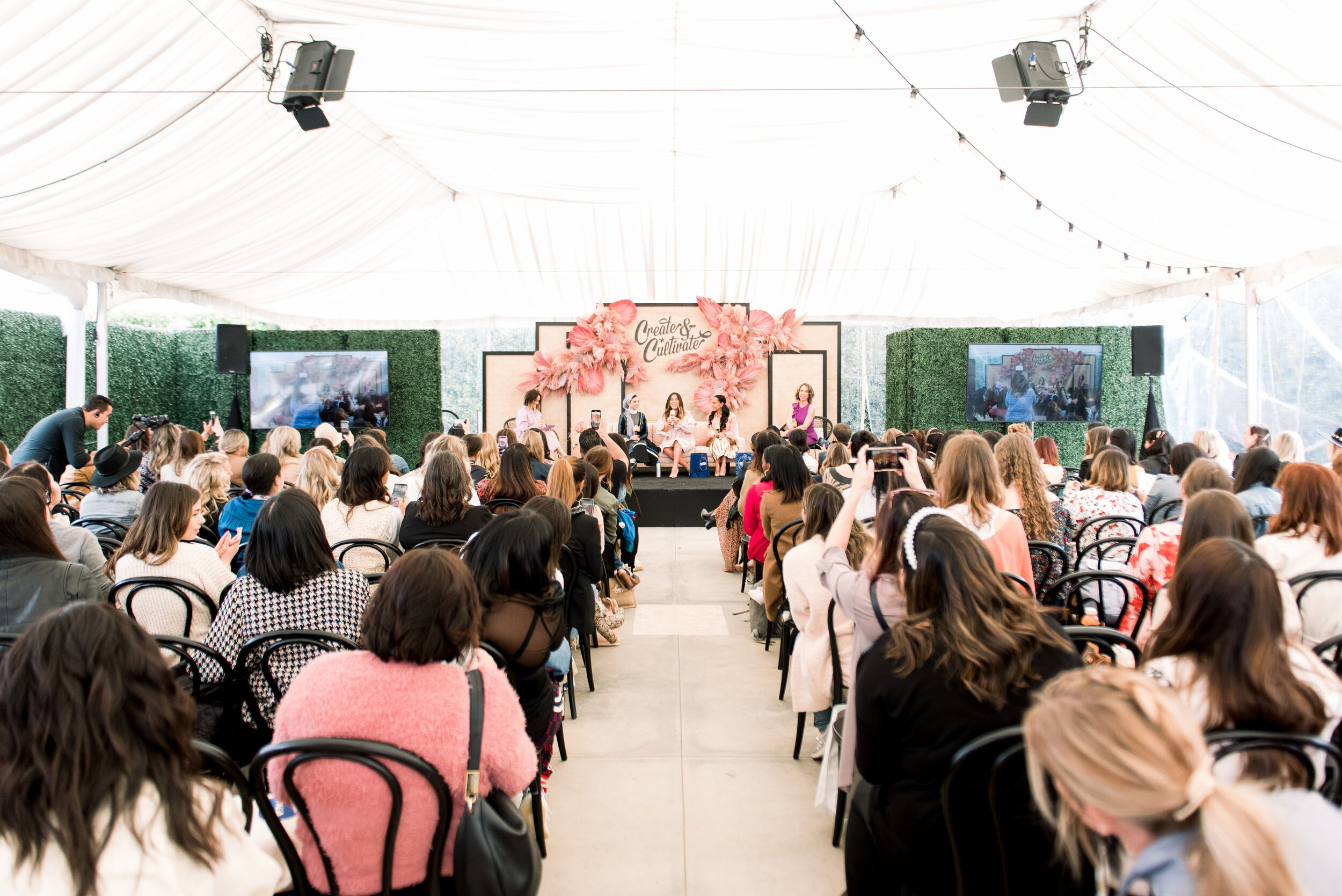


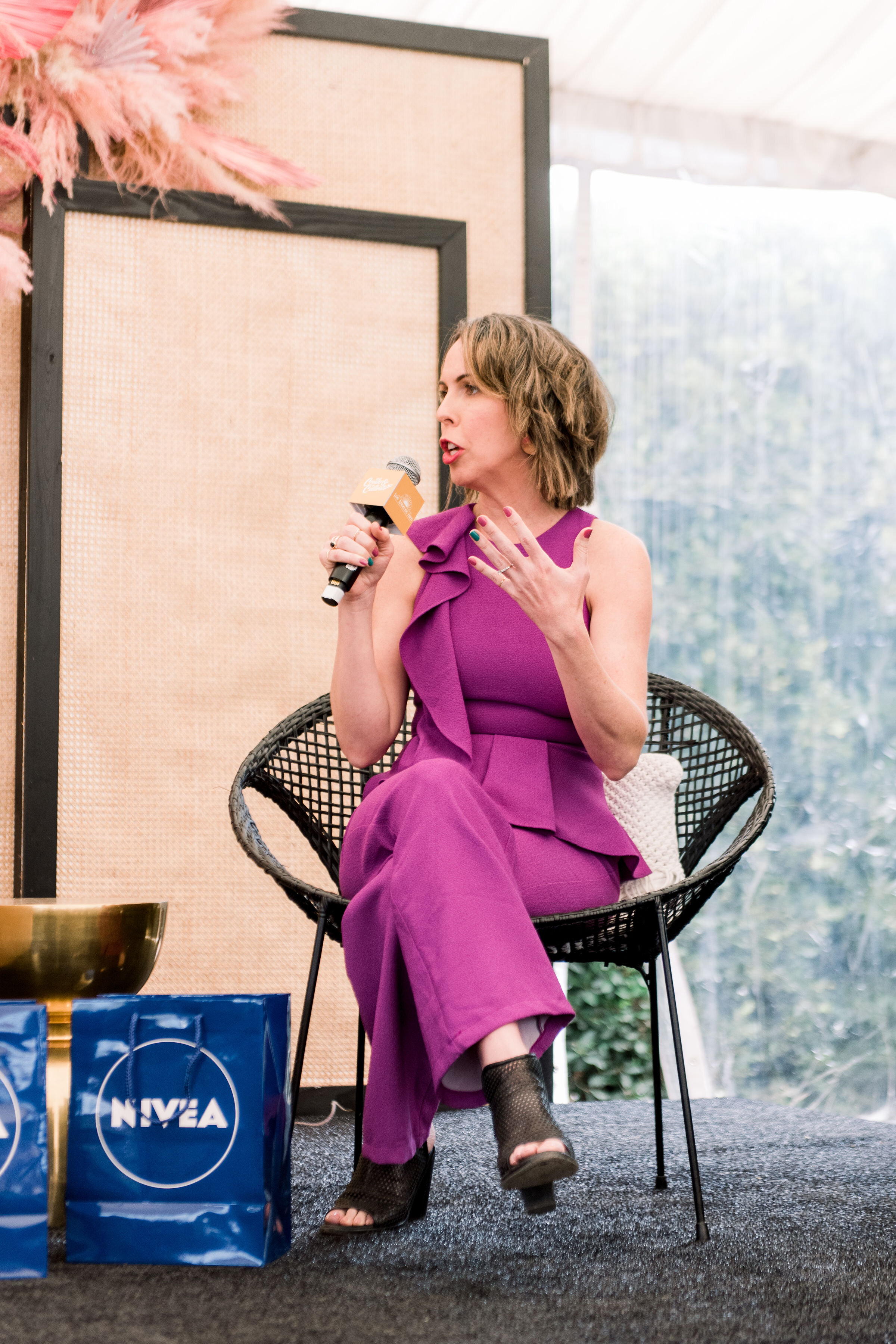
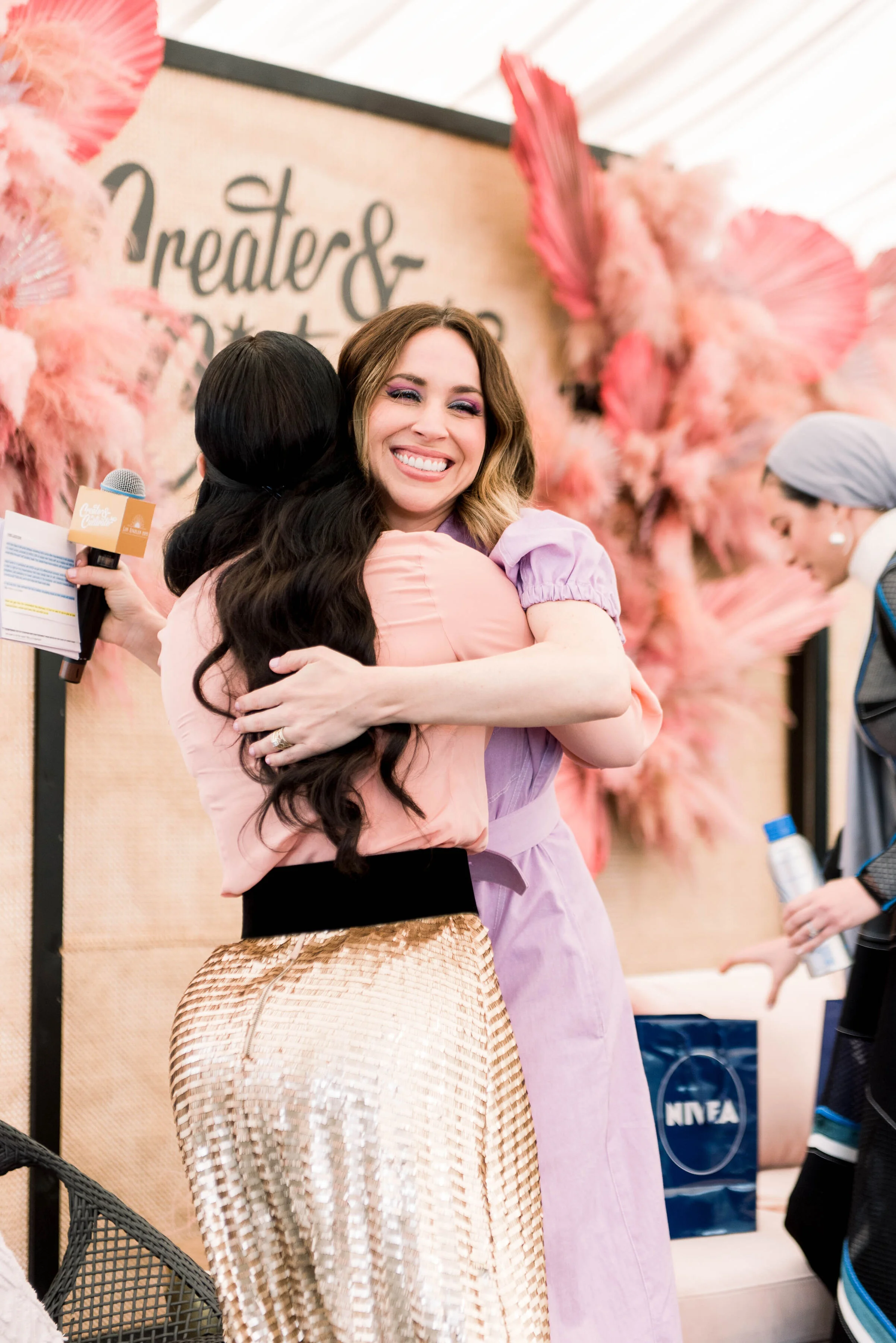
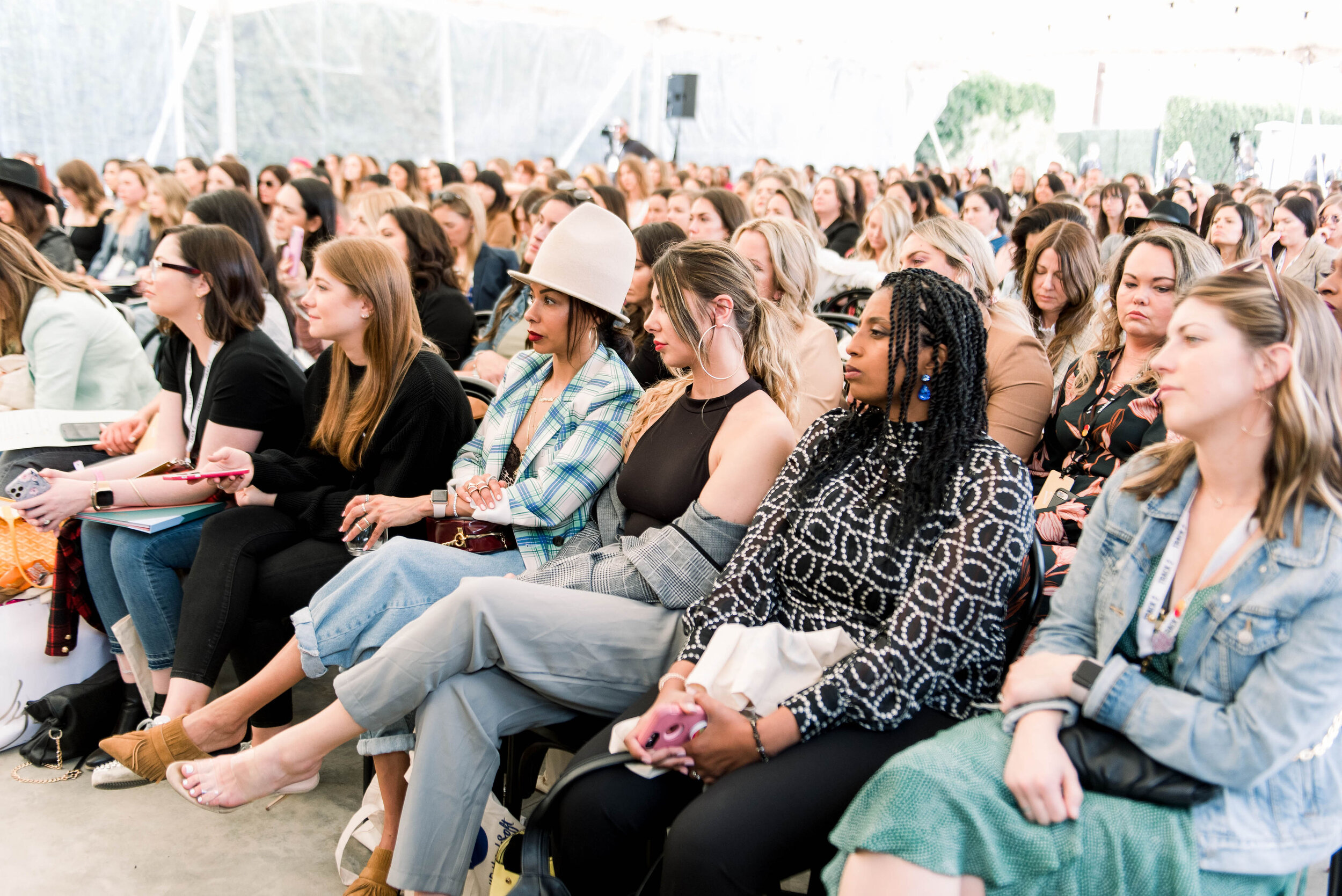
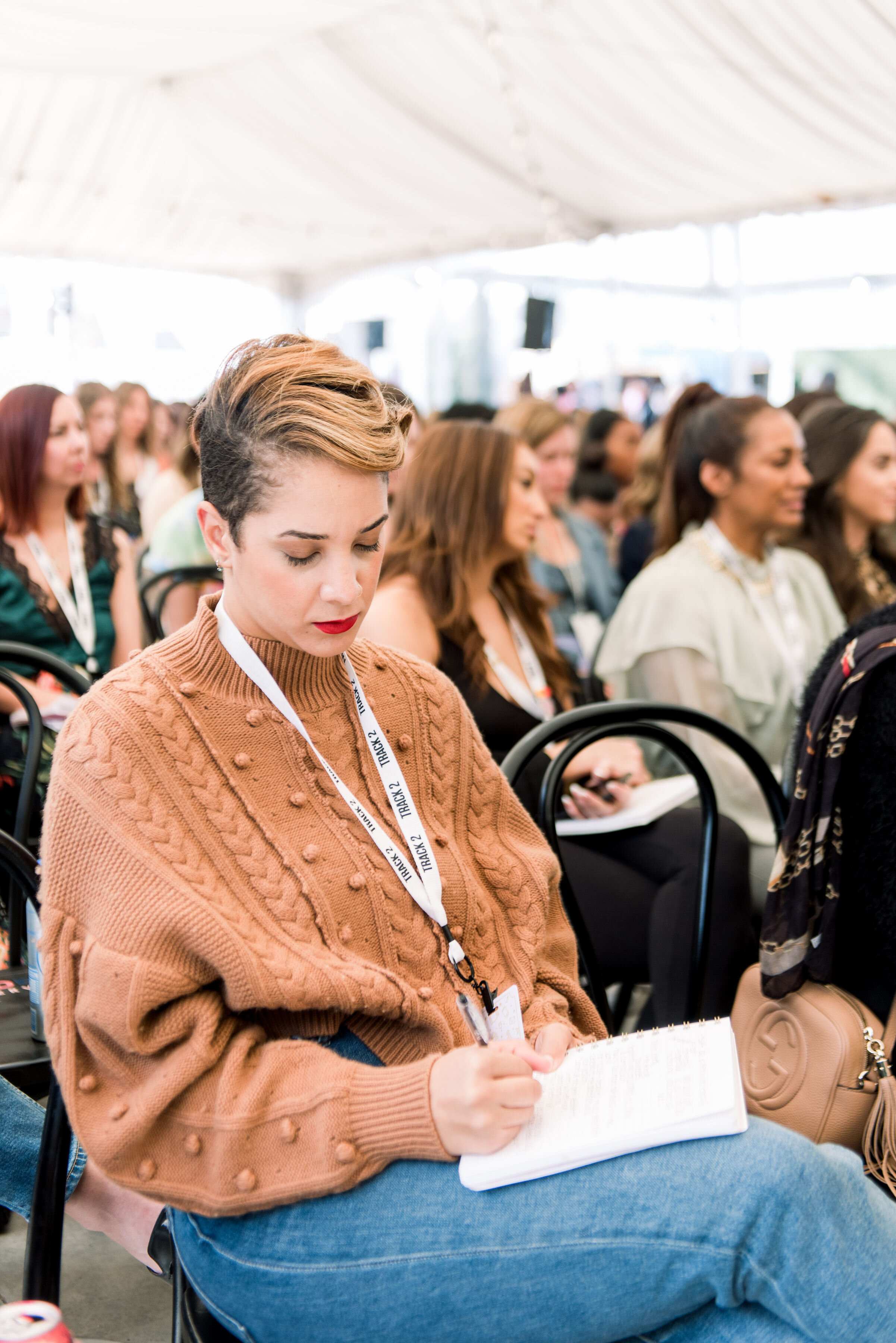
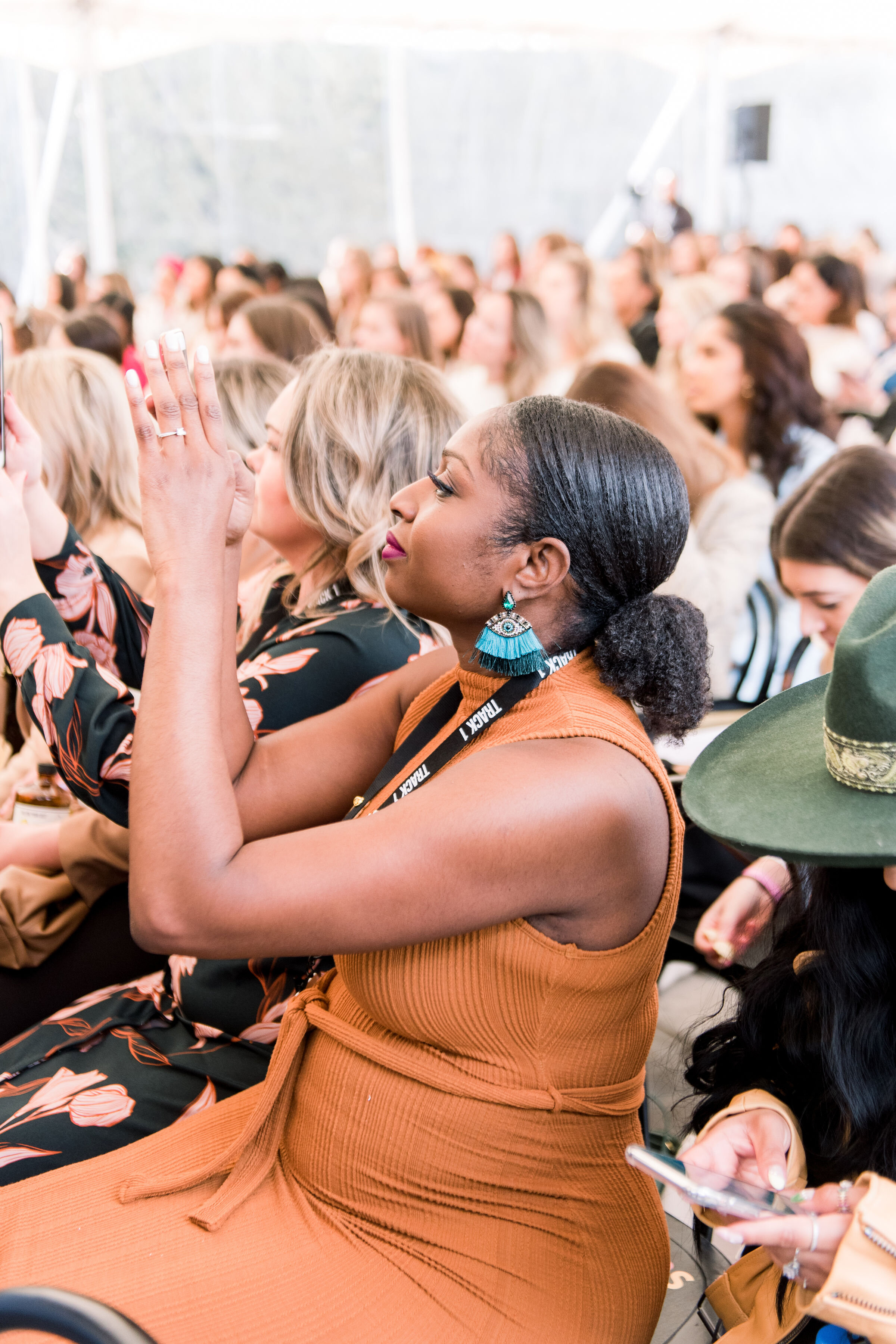
Photography: Smith House Photo
Mentor Monday: 3 Things a Resume Expert Wants You to Know
Get a sneak-peek into our Insiders membership monthly perk.
Photo Courtesy of: Create & Cultivate
Did you know that Create & Cultivate has an Insiders membership program? There are SO many perks to being a member but one of our most popular is the monthly mentor sessions. These monthly digital videos give members some serious facetime with experts across various fields, and the opportunity to get personalized answers to all of their pressing business and career-oriented questions. Members can register for these informative live streams ahead of time and send their own questions to be answered in real-time.
Recently, professional resume writer and personal branding expert Michele Lando hosted a mentor session for our Insiders to answer all of their burning resume questions. As the founder of Write Styles—a provider for personal branding through curating clients’ resumes and self-confidence while navigating the workforce—Lando is very well-versed in the do’s and don’ts of resume drafting.
Here are three key takeaways from the mentor session to apply to your own resume today:
1. Less is More.
“You don’t want your document to be so over-the-top that someone doesn’t actually focus on the information.” In this portion of the Mentor Session, Michele Lando is referring to the design and layout of your resume. When it comes to color palettes or eye-catching graphics, Lando recommends double-checking that your design enhances the information, rather than taking away from the information. After all, you are promoting your own skills, not your aesthetic eye (unless you are applying for a graphic design position, in which case Lando says there are exceptions).
2. Your side hustle may be worth leaving off.
“Anytime you go to include anything on your resume … make sure it sticks within the focus you’re trying to highlight and the skillset that you’re trying to highlight.” Here, Lando honed in on tweaking your resume based upon the position you are applying for. For example, if your side hustle does not support any skills that could be useful to have for your potential new job, it may be better to just leave it off. Additionally, Lando points out that if you’re applying for a job that requires a large time commitment, it may be smarter to remove your side hustle because people may be concerned you do not have room in your schedule to take on another career.
3. Don’t be afraid to step into a new industry.
“Keep an open mind. When you’re trying to switch industries, I think the first thing to consider is that it’s not all-or-nothing. It is one step at a time.” If you’re trying to transition careers but feel like your lack of experience in that field is leaving you feeling less qualified against other candidates, Lando does not feel that this is a cause for serious concern. Instead, she recommends that you start taking informational classes so that you can display on your resume that you have at least a baseline understanding of what you are wanting to transition into. Also, she suggests using your current job to your advantage in the meantime. See what pockets of your current workspace you have yet to explore, and ask to sit in on projects, take on different roles, and try to explore other opportunities.
Be sure to sign up for our program sooner than later to hear who will lead the next mentor session! For more information on our membership program, check out our FAQs page.
Banana Republic's Art Director Says Having a Life Outside of Work Is Critical to Success
“You can’t work at your best if you’re burnt out.”
We often look to the iconic leaders of our time for motivation and wisdom, but for many of us, this is purely inspirational and not as applicable to our everyday lives. We truly believe there is more benefit in looking to your left and seeking out a peer-to-peer mentorship with a colleague or friend you admire. Why? Firstly, they will likely have the time to be your mentor, and secondly, their advice will be relatable and allow you to see your path clearly while keeping your mind open to new ideas, identifying new opportunities, and helping you self-advocate. We call them Everyday Superheroes. In this new series, we talk to the people who are paying it forward, lifting others up and paving a smoother path for the next generation to come.
Photo: Courtesy of Banana Republic.
It’s safe to say that the traditional career model has been completely disrupted. The path to your dream job is no longer linear—it takes many twists, turns, and jumps along the way—and the days of choosing one job for the rest of your life are officially over. Now, it’s a choose-your-own-adventure journey and which way you turn is completely up to you.
Kimara Mitchell’s story is proof that every job, no matter how big or small, all contribute to the end goal. When she was working at her local Macy’s in the Esprit shop-in-shop or studying to be an engineer, she didn’t know that one day she’d end up in her dream job. Fast forward to today, and Mitchell is now working as the associate art director at Banana Republic leading photoshoot art direction, research, and hiring a team of photographers, illustrators, designers and more to bring the brand to life.
Everything about Mitchell’s career path has been non-traditional including how she landed her current role. Read on to hear how the award-winning designer went from the agency side to in-house, what she does to prevent burnout, and why staying true to who you are at work is key to your success (and the business).
And if, like us, this has you feeling inspired and motivated to kick off the new decade with a whole new perspective, then head over to the Banana Republic career’s page to learn more about how you can get involved and embark on a new, and exciting career path for 2020.
CREATE & CULTIVATE: What did you study in school? And what did you want to be when you grew up?
KIMARA MITCHELL: “Initially I was an engineering/urban planning major. I’ve always been obsessed with cities—how they are planned, transit, green spaces, community buildings—and thought it would be the right career path for me. I didn’t realize how technical it was and after taking an illustration class in my sophomore year, my professor told me about something called communications design. I took a summer seminar at Parsons and then switched my major to advertising the next semester.”
What are some of the earlier jobs that helped to shape your career/path?
“One of my first jobs was working in retail at my local Macy’s in the Esprit shop-in-shop. I’ve always loved fashion, especially the marketing side. When I was young, I would have ads on my wall from magazines, not posters of celebrities. I never knew how to get from admiring ads to creating them.”
“I don’t believe in the idea that you need to hide the real you at work.”
What challenges have you faced along the way? What did you learn from them? How did they prepare you for your job now?
“When I graduated from college, I worked at advertising agencies and it was hard to get a job in-house because they wanted someone with in-house experience. Agency life tends to be very fast-paced and you have to be detail orientated and able to juggle multiple jobs, clients, and deliverables at once. Interestingly, it prepares you for working in-house, especially given the shifts we have to make based on business. On the in-house side, you also work much closer with cross-functional teams, like marketing, merchandising, inventory management, finance, and design. There were a lot of acronyms I didn’t know when I first came to Gap, so I studied up.”
Tell us about your role at Banana Republic? What does it entail? Did you work your way up? What were the positions along the way?
“I am currently the art director for Banana Republic Factory and my job is two-fold. First, I come up with the concept and art direct our seasonal photoshoots. I work with the global creative director and senior director of photography for Banana Republic on evolving our photography, model choices, and how we show up as a brand. Secondly, I manage a team of designers who create marketing with photography, like store signage, direct mail, site, emails, and social.
“I started here as a senior designer on the outlet shared services team, then moved over to the Banana Republic side. From there, I started working with the former creative director on shoots until he would let me run them myself. After two years of that, I was promoted to art director.”
What do you love most about your job and why? Does the reality of your career match up to your expectations/why/why not?
“I love the flexibility in my job and that every day is something different. I could be pulling inspiration for an upcoming shoot, art directing someone on my team for a digital editorial or working with our copywriter on an Instagram story. I never imagined that I’d be in this spot, so I didn’t really have an expectation of what it would be like.”
What can you tell us about the culture at Banana Republic? What has encouraged you to stay?
“I’ve stayed because it’s been a challenge and not become stale. People here are very passionate and extremely intelligent, and it makes you want to step up your game. That being said, we also care about each other and like to have fun.”
Talk us through your daily tasks and what a day in the office looks like for you? What’s the most rewarding part of your day?
“One of the things I love is that no two days are the same. I like to check email and get a head start on that on the commute in. Then I’ll come into the office, check-in with my team, probably work on a project or two and attend meetings like project reviews or kickoffs, brainstorm some upcoming initiatives, or work on some image retouching notes.”
What does your morning, pre-work routine look like? What rituals set you up for success?
”I’ve been into sports since I was young, and I started running in high school. I usually start off the day with a three-mile run, then come home, check email, and have breakfast. I’m a bit obsessive about having breakfast every day without fail. I like working out in the morning because I feel it sets me up better for the day; I’m more energized. I also like to write things down. I have two datebooks, a smaller personal one and a larger one to plan out the shoots, milestone meetings, and creative reviews. I have weekly and daily checklists to keep myself organized.”
Your role requires you to be across so many facets of the business—how do you manage your time effectively? What is your greatest productivity hack? How do you get it done?
“It can be challenging for sure! One of the great things about our office is that you can work anywhere. Sometimes in an open floorplan, it can be hard to concentrate, so I’ll work in the café or one of the couches we have around the 8th floor. I’ll also turn off my email for a few hours so I don’t get distracted. I also make priority lists for myself and I always ask business partners when something is needed by—they feel their needs are being met, but I’m not stressing to get everything done ASAP.”
Do you ever reach inbox zero? Do you believe in that? What is your inbox philosophy?
”To me, having an inbox at zero means that I have read and acknowledged everything in my inbox. If I need to reply, then I’ve done that or forwarded it on to someone else who can better answer someone’s question. Having my inbox at zero means those things have been checked off my list and I can move on to other tasks.”
What is one of the biggest misconceptions about your job?
“If you work in fashion, people tend to think it’s very glamorous and your days are spent with samples, on set, or around models. It is a ton of hard work that starts way before the actual photoshoot. It’s the pre-season planning, pulling inspiration, collaborating with styling, marketing and merchandising on stories, working with prop stylists and photographers on getting all the details nailed down, and much more. Once you get to the shoot days, hopefully, everything is ticked and tied and the day(s) will run very smoothly.”
If someone wanted your role specifically, what advice would you give them on how to land their dream job/your current job?
“Be a cultural sponge. Inspiration really comes from everywhere, so it’s not just about going to school and studying art direction. I’m constantly looking beyond fashion and in popular culture, art, music, books, current events, politics, sociology, and more to influence what I’m doing. I also think with the advent of social media, you don’t have to live in a large city to work in fashion or retail. Seek out local photographers or stylists where you live and do test shoots, or collaborate with your favorite local boutique on editorials. Many of them don’t have a huge budget and would love help with marketing or social media.”
“Be a cultural sponge. Inspiration really comes from everywhere.”
Have you seen a consistent standout quality or personality trait of successful people in this industry?
“Be someone who is constantly learning and willing to pivot. The industry is changing so rapidly and it’s the people and the brands that are evolving that will succeed.”
What’s the best piece of advice you’ve been given? And what’s the worst piece of advice you’ve been given?
“The best piece of advice is ‘you are not your job.’ The interests I have outside of work keep me inspired and motivated when I’m in the office, and you need to carve out time for yourself to be with friends, family, travel, etc. You can’t work at your best if you’re burnt out. I don’t believe in the idea that you need to hide the real you at work. I’m a proud African-American woman, and the things I’ve experienced give me a unique viewpoint. As someone who never saw women like myself in fashion growing up, I want to make sure young people know that this is an option for them and you can be uniquely you while doing it.”
If there was one person you admire that you could power brunch with, who would it be?
“I would love to meet Shiona Turini. She started in PR at a high fashion brand and then segued into being a fashion editor and now a wardrobe stylist for television and movies. I’d love to pick her brain about that and also just talk fashion.”
In your mind, what’s a perfect interview outfit? Why? Explain?
“It really depends on your chosen field but at Banana Republic I think it’s something that shows your personality and creativity. It could be a fun midi skirt and leather jacket or sleek denim and a blazer. You should always dress up though and not be too casual, even in a ‘casual’ workplace.”
Visit the Banana Republic career page to learn more about their exciting job opportunities and career options.
MORE FROM THE BLOG
What I Learned About Success From Women Who Have Raised $1 Million+ for Their Businesses
Lesson 1: Personal wealth is a non-factor.
Photo: Godisable Jacob from Pexels
The connotation around the word success doesn’t mean what it once meant to me. Growing up I can remember thinking that success equated to wealth, status and excellence. Honestly, to be successful felt intimidating and unattainable. The intimidation around success was one of the main reasons that I felt it necessary to explore the idea.
I was recently asked to run down a list of accomplishments, and I had at least 10 things that I rattled off, but does that mean that I’m successful? Being the host of the personal development podcast Switch, Pivot or Quit, I wanted to take the opportunity to consult with other women about their thoughts on success.
In the last year and a half, I’ve interviewed more than 75 women in business and more recently, through producing the new Mayzie Media podcast A Milli, I’ve had in-depth conversations with a variety of stellar women who have amassed one million-plus in business.
When asked: what does success mean or look like for you? I discovered an honesty that was refreshing among the women interviewed for A Milli, despite collectively having $60 million in annual revenue, 5 million in social followers, and more than 116 million in funding.
“I'm not sure what success means to me,” said Abyah Wynn, a 29-year-old Vice President of Business Development at Trimantium Capital. “I think that giving back in a big way and being able to use my talents and everything I’m learning and doing now to help others would be my definition of success.”
Ahead, my takeaways on success.
Personal Wealth Is a Non-factor
Not only has our idea of success as a society began to shift, but we are also seeing an evolution in how we allow success to play a role in our lives day-to-day. Many of us are realizing that there's more to life than the flashy outward perception of success, especially from an emotional perspective. Abyah also said, “I could drive the car and buy the house and wear the shoes and the designer labels, and that's great, but that is absolutely not my definition of success.”
Definitions Are Changing
Pre-social media many of us had this fairytale idea of what success looked like, but now we see that success can come in different ways, take different forms and evoke different feelings and that’s okay.
“I think success, in general, is very personal,” said Christina Stembel, Founder and CEO of Farmgirl Flowers. “I think for myself it means building Farmgirl into a company that I'm really proud of, meaning that I did it the right way. I didn't do it the way that just maximizes profits in order to get the highest sale amount. It's building a company that I'd want to buy from, sell to and work at.”
Success Is in the Little Things
Daily, we have the ability to feel successful in the most routine ways. We can also help inspire those around us to feel a sense of accomplishment and success as well. Speaking on her feelings regarding success Drybar founder, Alli Webb immediately defaulted to the emotion that her business draws out of women. “We’re doing over a million blowouts a year, which means we're making a lot of women happy and I very quickly learned, which I don't think I completely realized when we first started Drybar, how incredible Drybar and a great blowout makes a woman feel.”
Happiness Means the Most
A common theme that surfaced during my interviews was happiness. We all just want to be happy, and we are starting to realize that we have to prioritize our happy. “I think success is just being happy with myself wherever I am and with whatever I'm doing,” says Nicole Gibbons, Founder, and CEO of Clare. “I think when it comes to family and my personal relationships I think having those relationships be healthy and happy is also what makes me feel really accomplished and successful because when you're running a big company having a support system is really, really important. My measure of success is not tied to any one accomplishment it’s more tied to my own personal sense of contentment and happiness, and that's really how I look at the idea of success and how I define it.”
We Can All Be Successful
Determining whether or not you have been successful in your life can only be made by you. Your interpretation of self and your accomplishments dictate whether you choose to believe that you are successful or not. One definition of success points to it being the accomplishment of one's goals, and you can do that right! Think about it, something as simple as establishing that you want to begin a routine of morning meditation for ninety days straight is a goal. If you follow your plan and achieve that goal for the next ninety days, then you were successful. Success can be accomplished daily, and we are the ones that complicate it with expectations.
ABOUT THE AUTHOR
Ahyiana Angel is the Founder of Mayzie Media, a podcast network with content curated for women, and host of the Switch, Pivot or Quit podcast. A traditionally published author, Ahyiana is a seasoned executor who eventually blocked out the world’s ideas of success, quit her highly coveted position at the NBA, moved to London and traveled the world for a stint, then followed her passion in writing to find her purpose in encouragement through podcasting.
Mastering the art of note-worthy ideation, Ahyiana taps into her more than 12 years of professional business marketing experience to lend her thoughts on professional development, digital marketing, contemporary brand styling and more. However, Ahyiana enters her zone of genius when speaking to audiences about her 4 Ps: publicity, publishing, personal development and podcasting.
This post was originally published on October 25, 2018, and has since been updated.
MORE FROM OUR BLOG
Gwyneth Paltrow, Marie Kondo, Tyra Banks, and More on the #1 Book They Always Recommend
Create & Cultivate 100 honorees share the tomes they swear by.
Photo: Daria Shevtsova from Pexels
Just a quick glance at the reading habits of some of the most admired business people of our time is enough to convince you to crack open a book. Bill Gates famously reads 50 books a year, Warren Buffet spends five to six hours a day reading, and the one-and-only Oprah Winfrey credits books for much of her success, which is one of the reasons why she started her influential book club way back in 1996 (!).
In search of a fresh crop of inspiring, motivating, confidence-boosting books to add to our own to-read piles in 2020, we asked this year’s Create & Cultivate 100 honorees to share the #1 book they always recommend—and they did not disappoint. Spanning timeless tomes filled with tried-and-true life lessons to hot-off-the-press books brimming with sage career advice, this list of page-turning reads has it all.
Ahead, 65 badass female founders, entrepreneurs, CEOs, and all-around successful women reveal the books that helped them get where they are today. Prepare to fill your Amazon cart accordingly.
JACEY DUPRIE: “The Hard Things About Hard Things by Ben Horowitz. It gives quick little nuggets of business advice that you can actually apply to your day-to-day.”
MARIE KONDO: “Big Magic by Elizabeth Gilbert. Elizabeth’s approach to work and life celebrates many of the same values as the KonMari Method. I admire her vulnerable path to self-discovery.”
SHAY MITCHELL: “The Four Agreements by Don Miguel Ruiz. It’s an amazing read, pertinent to almost everyone and riddled with pertinent lessons we should take to heart.”
JESSICA KOSLOW: “Journey to the Heart by Melody Beattie. It’s about this woman who lost her son to cancer and her road back to celebrating life. Every day there’s a different mantra based on what she was going through during those 365 days back to finding herself. It’s really special and I read it every morning. Erin—the GM of Onda—gave me the book and it’s really helped me get through this time of opening this restaurant.”
DAISHA GRAF: “Oh, the Places You'll Go! by Dr. Seuss. Keep the wonder in your life. Nothing is impossible. If you can dream it, you can do it.”
OLIVIA CULPO: “I am a huge bookworm so it’s really difficult to choose one but a few of my favorites are How to Win Friends and Influence People by Dale Carnegie and The Secret by Rhonda Byrne.“
DANIKA BRYSHA: “The Firestarter Sessions by Danielle Laporte. A great way to get clear on what you want and just dig deep into the direction of your life.”
TIA MOWRY: “The Alchemist by Paulo Coelho. This book taught me that whenever you feel like you're alone, you're not. No matter what you believe in, you're always being guided. You just have to be sensitive and open to embracing the omens.“
WENDY LOPEZ & JESSICA JONES: “Health at Every Size by Linda Bacon is a great starting guide to understanding our approach to food, nutrition, and wellness! Linda dives deep into the research surrounding weight science and addresses the history behind some of the prevalent wellness trends we see now.”
ROCKY BARNES: “The Four Agreements by Don Miguel Ruiz. Learning to not take things personally in our industry has helped me more than anything!”
KELTIE KNIGHT, BECCA TOBIN, & JAC VANEK: “Work Party by Jaclyn Johnson because we love to support the ladies who support us!”
GENEVIEVE PADALECKI: “The Four Agreements by Don Miguel Ruiz. It's simple advice that cuts to the core. Especially the ‘don't take anything personally’ message. I also love the Last Child in the Woods by Richard Louv. It reinforces my drive to connect with nature.”
LENNON STELLA: “Astrology for the Soul by Jan Spiller and The Power of Now by Eckhart Tolle. These books really centered me and helped me understand myself and accept myself entirely.“
LALAH DELIA: “The Power of Your Subconscious Mind by Joseph Murphy. This book is essential reading because, until we truly get and honor how our mind operates and how we can take control of it, we live a life that is controlled by external and internal forces, cycles, and thought patterns that don't serve us.”
JUNE DIANE RAPHAEL: “Ah, there are so many books I'd recommend. My current demand is that everyone read Thick by Tressie McMillan Cottom. She is one of the greatest intellectuals we have right now and her thoughts on race/beauty/gender/politics are challenging so much of what I've thought to be true. In the very best of ways.“
TONYA RAPLEY: “My book! The Money Manual! It's straight to the point, easy to digest and really helpful. Other than mine, Profit First by Mike Michalowiz, it's a must-read for business owners.“
KIITAN AKINNIRANYE: “Right now, I am reading The Purpose Driven Life and I really love it. I’d recommend it to anyone who is searching for purpose and even people who are already walking in their purpose. It really gives insight into how to do it from a God perspective, which is really important to me.”
MELISSA BEN-ISHAY: “I love The Alchemist by Paulo Coelho.”
ISKRA LAWRENCE: “Now that I'm pregnant, I am reading this amazing book that I would definitely have anyone that's pregnant or planning to be pregnant read. It's called Three in a Bed and I find it absolutely fascinating. For me, motherhood has been my biggest goal and dream and something that I want to make sure that I am as prepared as possible. For me, it's the most important job you can do in the whole world. Raising this human to be a good person who is motivated and passionate and embraces all the things that make them special. I think it's a fantastic book in a world where childbirth has a set routine when in reality there are so many options.”
CHRISELLE LIM: “Outliers and The Tipping Point, both by Malcolm Gladwell.”
NOELLE SCAGGS: “The Power of Habit: Why We Do What We Do in Life and in Business by Charles Duhigg. It’s my life bible and everyone should have this book by their bedside. It lends a real perspective on human nature when it comes to routine and comfort.“
LINDSAY PEOPLES WAGNER: "I Know Why The Caged Bird Sings by Maya Angelou is a book that changed my life and can be read over and over again.”
JULIA LANDAUER: “Forever by Pete Hamill. It's a novel that's a beautiful love story to New York City, but it's also an example of living life fully, being present, and appreciating our own existence.”
JULIA CHEEK: “The Hard Thing About Hard Things by Ben Horowitz! It’s an honest look at the ups and downs of building a company. It makes the job a little less lonely to know that all of the best founders have gone through the same rollercoaster.”
CINDY ECKERT: “Purple Cow by Seth Godin. Read it. It encourages the powerful idea that you should embrace what is unique to stand out in the sea of sameness. If only Seth would reprint it this year and title it Pink Cow.”
NOOR TAGOURI: “The Originals by Adam Grant.“
ALLY MAKI: “Anything by Brené Brown. Her words on vulnerability and shame have gotten me through some of my toughest moments.“
BECCA TILLEY: “How to Win Friends and Influence People by Dale Carnegie. It’s basically a book teaching you how to be kind to people and how to treat people you meet for the first time. I always go back and read certain parts because it’s always so eye-opening and being kind to people is never going to go out of style!“
TYRA BANKS: “Delivering Happiness by Tony Hsieh. I am obsessed with his company culture. So much that I cold-called him! We were on the phone for over an hour and he shared so many valuable insights (all of which I implemented with my team!). I highly recommend this book for entrepreneurs.”
JESSIE JAMES DECKER: “I loved The Glass Castle. Jeannette Walls had a wild and unique childhood, but that didn't stop her from achieving her goals and building her character. That's what I always say when things seem messy... it builds character.“
MANDANA DAYANI: “Last year, I read On Tyranny: Twenty Lessons from the Twentieth Century by Timothy Snyder. It was incredibly eye-opening and a critical reminder that we must learn from our mistakes. It also provides context for how critical this time is for democracies across so many countries in the world.”
CAMILA COELHO: “Outliers by Malcolm Gladwell—it explores the various differences between us as humans and why some succeed more than others.“
JAIME-LYNN SIGLER: “The Four Agreements by Don Miguel Ruiz. In a way, it takes all the pressure off life. It allows you to really see the world through a different lens. I re-read it every year and even have a tiny copy of it that I carry in my bag.”
MARNI SENOFONTE: “Some oldies but goodies—The Seat of the Soul by Gary Zukav and The Last Lecture by Randy Pausch—both still hold their weight.“
FADIA KADER: “The First 90 Days by Michael D. Watkins. I was given this book when I started a new role and it helps you level-set expectations in your first 90 days in a new company or a new role. I read it as a refresher with each new chapter/role in my career. I often gift it to friends and peers and love seeing them continue that tradition.“
LAUREN CHAN: “The Body is Not an Apology by Sonya Renee Taylor—and I suggest you listen to the audiobook so that you can hear the author preach.”
TYLYNN NGUYEN: “Women With Money by Jean Chatzky. We need to be more confident in our own means and still stop apologizing for having your life together. This is a great book for women who have money or women creating wealth or even women who want to create wealth for themselves. We are in this together. Let's talk more about how to build each other up in all facets.”
PAIGE ADAMS-GELLER: “The Four Agreements by Don Miguel Ruiz. This book is a quick read that can be applied not only in business but in all of your personal interactions.”
LILY ALDRIDGE: “The Alchemist by Paulo Coelho is one of my favorite stories of all time! It reminds me that we are on a path in life and that there will be ups and downs, but everything is happening for a reason and to trust the journey!”
SASHA SLOAN: “Ah, it’s too hard to pick! I love to read. I guess my #1 book recommendation would be The Book Thief by Markus Zusak I read it in high school and I’ve loved it ever since.“
KIRSTY GODSO: “Relentless: From Good to Great to Unstoppable by Tim Grover.“
BRITTANY XAVIER: “Hands down, The 4-Hour Workweek by Tim Ferris. I think it’s a great book for anyone that is considering creating a side-job. You need to start small, and this book will help you if you need a little more inspiration to understand that it’s feasible.”
FRANCHELLI RODRIGUEZ: “The #1 book I always recommend is the Bible! The Bible covers everything we could ever ask for. I know not everyone is a believer, but I do believe that there is a message in the Bible out there for everyone. No matter your situation or circumstance, read the Bible and you will find comfort and even answers!“
ESTE, DANIELLE, ALANA HAIM: “Letters to a Young Poet by Rainer Maria Rilke.“
SARAH LARSON LEVEY: “The Monk by Matthew Lewis. It was required reading for one of my lit classes in high school. It was written in the 1700s and is still so relevant today. I come back to it time and time again.”
PRISCILLA ONO: “I love all of the Kevyn Aucoin books! When I was growing up as an aspiring makeup artist, we didn’t have social media or the internet for makeup inspo. Kevyn Aucoin was way ahead of his time when it came to artistry and being a celeb makeup artist. His makeup looks are timeless and his background and story are so inspiring. Any aspiring makeup artist should invest in reading them.”
ANASTASIA SOARE: “Never Give In! A collection of Winston Churchill’s speeches that never fails to stir something inside you.”
KARLA WELCH: “The War of Art by Steven Pressfield, Catching the Big Fish by David Lynch, and Just Kids by Patti Smith—because they are all perfect.”
ADRIENNE BOSH: “The Mastery of Love by Don Miguel Ruiz is one of my all-time favorite books. It’s not only about building romantic relationships, but it’s also about learning how to capture the love you have within yourself. As a young woman, I think it’s so important to learn to love yourself first before ever investing yourself in another person, so it was really helpful for me.”
NATASHA CASE: “I read books for pleasure, so 1Q84 by Haruki Murakami or Gone Girl by Gillian Flynn, which you can inhale in one long weekend. For meaningful reads, The New Yorker has phenomenal writing.”
JULIANNE HOUGH: “Oh wow, there have been so many over the years. Most recently I’d have to say Belong by Radha Agrawal. It’s an incredible book about approaching life through the lens of community, being in service, making powerful contributions through collaboration and remembering there is only one you who can make a difference like you can. I also love The Artist’s Way because as a performer my whole life, it's easy to lose sight of the artist within you. This book is really a program that can be supplemented with KINRGY to nurture the artist in all of us.”
MARIA MENOUNOS: “This is tough. I can’t name just one, so here a few of my favorites:
In business, Money: Master the Game: 7 Simple Steps to Financial Freedom by Tony Robbins, because it inspired me to make necessary financial changes and set me up for the rest of my life.
In health, The Empath’s Survival Guide by Judith Orloff, M.D., because it helped me understand why I am the way I am.
You Are the Placebo: Making Your Mind Matter by Dr. Joe Dispenza, which taught me how the brain can create its own apothecary.
Ask and It Is Given: Learning to Manifest Your Desires by Esther and Jerry Hicks. I learned so much about energy and how to get what you want.”
NANCY SILVERTON: “A good novel to escape into. For the last few years that has been The Goldfinch by Donna Tartt, The Overstory by Richard Powers, The Neapolitan Novels by Elena Ferrante, and Southside by my boyfriend Michael Krikorian.”
RACHEL ANTONOFF: “I will always recommend Mary Karr's Cherry. It's a perfect book.”
JENNI KAYNE: “Any of Brené Brown’s books. I could read them over and over again and still and take away something new each time.”
GWYNETH PALTROW: “Dream Work by Mary Oliver.”
HAYLIE DUFF: “I love Big Magic by Elizabeth Gilbert. Encourages creative regardless of fears! Great read.”
NYESHA ARRINGTON: “The Four Agreements is my all-time favorite book! In The Four Agreements, Don Miguel Ruiz reveals the source of self-limiting beliefs that rob us of joy and create needless suffering. Based on ancient Toltec wisdom, The Four Agreements offers a powerful code of conduct that can rapidly transform our lives to a new experience of freedom, true happiness, and love. My dad gave me this book when I turned 21 years old. He is a very spiritual gentleman and I undoubtedly value his universal perspective of life. This is the most recommended ‘self-care’ book I tell people about and I have read/re-read it at least 20 times.”
LINDSAY ALBANESE: “For entertainment, I loved Bad Blood by John Carreyrou.”
CLEA SHEARER & JOANNA TEPLIN: “This may be an unusual answer to this question but… adult coloring books. They’re like our therapy and help to relieve stress after a long day. Seriously, go buy a coloring book and a pack of crayons and you'll thank us.”
SARAH BARTHEL: “I'm kind of a weirdo when it comes to books—the darker the better—so I'd recommend any Bukowski or Hubert Selby Jr.“
AISHWARYA S. IYER: “Embracing Your Inner Critic by Hal and Sidra Stone. It changed my life by helping me to overcome my own inner critic.“
TANYA RAD: “I just finished Calling in “The One” and I am obsessed with it!! It helped me learn so much about myself, my dating patterns, and helped me patch up some old wounds. Feel like 2020 is my year to CALL IN THE ONE, baby! Also, The Hollywood Commandments by Devon Franklin is soooooo gooood!!!“
MAMRIE HART & GRACE HELBIG: “Probably our own books, Mamrie's I've Got This Round and Grace's Guide. (Sorry, we had to get shameless plugs in.)“
ALYSSA RAVASIO: “I am an avid reader with towers of books constantly at risk of falling over, so this is really too hard, especially since it depends so much on the person I’m recommending to. Here are a few:
Braiding Sweetgrass by Robin Wall Kimmerer. She’s an amazing indigenous leader and teacher, and the book centers on the philosophy that people are part of nature, and how we have a responsibility to play our part in the ecosystem. A tangible example of this is that sweetgrass grows better when it’s responsibly harvested. “Leave it better” is really based on this mindset—at Hipcamp, we believe people can have a positive impact on the planet and believe it’s that kind of framing—versus a limited focus on reducing our negative impact—that will lead us to a healthier, more connected, and more regenerative future.
East of Eden by John Steinbeck. No book I’ve ever read more deeply captures the essence of humanity, in all its beauty and complexity.
The Overstory by Richard Powers. A deep examination of the relationship between people and trees.
Full Moon Feast by Jessica Prentice. A philosophical exploration of the culture around seasonal foods for both European cultures and indigenous American cultures. Plus great recipes.”
Photographer: Jenna Peffley
Hair: Styled by OGXpert & Celebrity Hairstylist Jillian Halouska
Meet this year’s Create & Cultivate 100 honorees and explore all 10 categories below.
Management 101: How to Prepare Your Team for Change in 2020
Prepare for it, implement it, and overcome resistance.
Keeping up with competition and new marketing avenues means that you need to change things frequently. Sometimes you can just make minor tweaks, but other times you have to implement a major process change.
Unfortunately, only about 26% of transformation initiatives succeed. What can you do to make your business one of the places that change sticks? It all has to do with how you prepare for a change, implement it, and overcome resistance.
Photo: Courtesy of Create & Cultivate
Preparing for a Major Change
If you’re in the position to determine what changes need to be made, the best advice is to include employees in the problem-solving process as much as possible. The more involved they are, the more likely they are to embrace and implement the new processes.
For instance, if customers frequently complain about turnaround time, you might create a new process designed to make things more efficient with the input of your staff who can give you an accurate look at what holds up their work. Or, perhaps you need to update a creative workflow to improve quality.
Once it’s time to communicate the change, think about who has the right skills to lead the initiative. Key change management skills include critical thinking, analysis, excellent communication skills, the ability to train people, and a deft touch with diplomacy.
Perhaps the right person is you! Or, it may be another leader in your organization or even a group of employees. The key is to know who will be most effective in leading the charge and to make sure they understand their responsibilities.
Research shows that one of the most common reasons for failure is that a plan is managed too top-down, with upper levels of leadership determining every detail of how change should happen. Experts say that success starts with focusing on every individual.
Implementing Change
The day has come—the change is ready to roll out. Congratulations! There are several steps to successfully introduce a new business process.
One key is to start small if you can. Is it possible to roll out the new initiative to a small group within your company that’s excited to try it? If so, the benefits that the group gets from the innovation may help prove its usefulness to more resistant staff members.
Whether you start large or small, it’s vital to communicate, communicate, communicate! Explain the problem the company was having and how the process modification will make a difference. Help your employees see the vision behind the change. More importantly, realize that all changes – even good ones – include some kind of loss to those involved. Even if the loss is simply that they were the fastest on the team and they might not be anymore, it could be a big deal to that individual. If you acknowledge and talk about those losses openly, it can help people overcome their fears and resistance. Ensure that productivity will likely fall while the team grows accustomed to the new change, and management is anticipating that.
Finally, if possible, walk through the implementation of the adjustment step by step, including a presentation of the intended changes and the timeline, so that employees do not feel caught off guard during any of the process. This will help people change their habits little by little, instead of having to throw everything out and start over. Also, people may have less opposition to small changes compared to large ones.
Overcoming Resistance
Handling resistance is a part of every change, especially significant ones. The good news is that if you do this well, you may build your team into a stronger unit than it was before.
The first step to overcoming concerns is to provide adequate training. Remember that a significant change won’t necessarily “take” on the first overview. You’ll need to train it, remind them, and possibly train it again. Remember that you’re trying to overcome ingrained habits—it takes time and patience.
Secondly, be sure to listen to and address concerns. You can create problem-solving teams to deal with bumps in the road that come up. Get employees to encourage each other to use the new process. Many times people respond better when they hear from a peer rather than a boss. Specifically, according to the Edleman Trust Barometer in 2017, trust in work peers is over 60% while trust in executives is below 38%. Plus, studies show that peer credibility is a key reason messages are heard or ignored.
Rewards or incentives tied to the new process may help as well. Be careful to define these clearly, because once people begin to get something extra it’s hard to take it away. You want to plainly say if the rewards are only available for the first month of the new process, for instance.
Finally, show everyone the positive results as they start to come in so that employees can see the fruits of their labors and fully understand why the change was made for the better. Continue to communicate about the process, concerns, and any problems that crop up. Over time, people will see the benefits and the new process will become much more second nature.
Protecting Your Business During the Change Process
Change isn’t just tough on your employees, it can be tough on your systems and software also. You need to make sure you are protected in case something goes wrong and you experience an interruption in your business.
One thing to do is to make sure you have a complete backup of all your data before the change goes live. You may want to make backups more frequently as the new process takes hold as well, just to be sure that you have what you need if something happens.
Consider getting business income insurance to cover you if you have an interruption in your operations. This coverage can help you with income, relocation expenses if needed, payroll, and more. Hopefully, nothing will go wrong, but it pays to be prepared.
Finally, you might consider slowing down your content production while the change takes hold. It’s a helpful way to reduce your responsibilities so that you can focus on the new process and training your employees to follow through.
Change Is Good—If It Sticks
The key to all change management strategies is that you want your new business process to stick. When you follow the steps outlined above, you’ll have a far better chance of that happening.
Managing change is scary, even for a business owner, but going through the process can make you a better manager. A team that does something challenging together is more cohesive as well.
You don’t have to be afraid of change. It’s a necessary part of being in business, and with these tips, you can navigate change management successfully.
About the Author
Jori Hamilton is a feminist writer from the Pacific Northwest who enjoys discussing social justice, empowerment, and how to improve the workplace. You can find more of her work in her portfolio here.
MORE FROM THE BLOG
How to Be a Shameless Self-Promoter (Without Inducing Eye Rolls)
Use poise, always (or risk being blocked from everyone’s social feeds).
Photo: Courtesy of Create & Cultivate
In an era of Kardashians and Kanyes, selfies and borderline obnoxious status updates, it seems like humility is a lost virtue. (RIP, modesty: it’s been real.)
Makes sense, right? Well, kinda. In these Tinder slash, Twitter slash, Instagram times, it’s all about showcasing the best of you with the best visual and in as few characters as possible. It’s also easier to have a certain arrogance when posting on social media because you literally have no filter (not to worry, by “no filter” I mean no reservations).
And even if it means shouting your accomplishments from the rooftops (or in Yeezy’s case, with consecutive ALL CAPS TWEETS), promoting yourself is necessary because if you’re not going to do it, no one else will do it for you. The trouble is, being boastful and plugging yourself constantly on social media and in-person can get annoying AF to your audience—but being humble might cause you to miss out on opportunities. And that’s no fun.
It’s a case of “don’t hate the playa, hate the game.” And it is, indeed, a game. So play by the rules, promote yourself with poise and come out a winner with these five tips:
SHOW, DON'T TELL
Whether you’re selling merchandise or your personal brand, hard facts speak volumes. So instead of posting that “You’re the best PR person in the city” on Facebook, opt for sharing photos of recent sold-out events you’ve organized. LinkedIn is the ideal platform for sharing news coverage about you, awards you might have received or listing recent achievements. Save Twitter as a playground for “quick hits,” such as any media coverage about you, recent articles you’ve written, or upcoming conferences you are speaking at, for example.
“Hard facts speak volumes when you’re your own PR hype.””
You can also leverage platforms like Levo to showcase your experience and your portfolio. Levo is an awesome website for creating personal profiles, where you can “tell your story” by adding all the cool projects you’ve worked on and connecting with your network.
Tip: Focus on the “why?.” So when listing your accomplishments, always demonstrate the value added to your potential clients and why you stand out from the competition. For example, if you’re a publicist, post your client’s media coverage and showcase the buzz your client’s product is receiving.
GIVE PROPS
Shouting out to people on your team, and anyone who helped you “make it happen,” is critical. For starters, the ability to give credit is a huge step toward being a successful manager, leader, or entrepreneur.
The magic of paying it forward on social media is also a key component to earning social capital. So if someone in your network tweets about an accomplishment, “heart” it and comment with a “Slay, girl. Slay!” (Feel free to insert relevant emojis.)
Go a step further and tweet about a female entrepreneur you know who’s killing it in her field, just to spread some love.
Giving credit to others on social media can even work with strangers, not only personal connections. They will appreciate the kindness, and many people might even return the favor. It’s all about social media karma!
BE A CONNECTOR
Knowing how to connect people to business opportunities or jobs is an amazing skill: it proves that you’re resourceful and have a vast network. If you’re the person in your squad who has this skill, use it! Your reputation as a master connector of people and ideas will spread — and it’s not something you need to shout from the rooftops either. Your clout will be clear.
AVOID CORPORATE JARGON
One of my personal pet peeves is when people spew corporate buzzwords in presentations and on their resumes, thinking it makes them sound credible. It goes something like this: “I suggest we deep dive into some blue-sky thinking that's high level so we can take a holistic approach.” It makes you sound like a robot, and more importantly, it takes away all authenticity. (More on this in a minute.)
While it’s key to sound savvy and relevant in your posts and social media presence, it’s also important to sound genuine. And yes, you might think you sound really smart with your corporate buzzwords, but they induce all kinds of eye rolls in my books.
BE AUTHENTIC
Authenticity is the most important part of knowing how to promote yourself with class. Not to get all Dr. Seuss on you guys, but no matter how you’re hustling, there’s a key mantra to keep in mind: no one else is YOUer than YOU. Others might have your skills and your experience, but no one else has your brand DNA: you know, all the things that make you, well, you.
Leandra Medine a.k.a. the Man Repeller is a great example of someone who has stayed true to herself. Her best-selling book Seeking Love. Finding Overalls and Man Repeller blog and brand are direct reflections of her personality, so when she promotes herself, she still seems real and slightly self-deprecating. This is part of her shtick and what has helped her gain celeb status.
So when speaking about yourself and promoting your recent wins, always make sure to stay true to your brand and personality. Authenticity is super valued in this era, so use it to your advantage.
THE RECAP
The truth is, you need to be boastful, confident and plug yourself constantly. Because if you don’t tell your story, someone else will. And in a sea of other bloggers/freelancers /creatives/career women/entrepreneurs, etc., standing out is critical to your success.
Now go forth and self-promote!
About the Author:
Karin Eldor is a coffee-addicted copywriter, with a long-time love for all things pop culture, fashion and tech. Ever since she got her first issues of YM (remember that one?) and Seventeen in the mail, she was hooked on the world of editorial content. After earning her Communications degree, she spent 6 years honing her craft as a Senior Editor for AskMen.com. More recently, Karin enjoyed gramming and strategizing as social media Manager at ALDO. Today, she is Chief Content Writer at 818 Agency and a social media consultant.
This post was originally published on April 28, 2019, and has since been updated.
MORE ON THE BLOG
How to Marie Kondo Your Career and Enter the Next Decade With a Bang
And go from job to joy.
Photo: Smith House Photography; Design: Ginny Macdonald
There’s not much room for debate. Marie Kondo is the Japanese organizing consultant who is transforming lives everywhere and despite her book, The Life-Changing Magic of Tidying Up: The Japanese Art of Decluttering and Organizing launching in 2011, Kondo continues to inspire people around the world to get their spaces in order.
In the book, she breaks down her two-pronged approach to cleaning. Step one: Physically touch your belongings, see if said belongings spark a sense of joy, and if they don’t, toss them. Step two: After you’ve done the dirty work and dumped those joyless items, put everything else back in a place where it’s easy to see, grab, and put back again.
It has brought countless people lasting results—to point, none of her customers are repeats. “In this book,” she writes in the Introduction, “I have summed up how to put your space in order in a way that will change your life forever.”
So we wanted to take her home tidying methods and apply them to work. Because WHY NOT? We want to change our relationship to work forever too! If she can work magic in the home, why can’t she work magic at the office?
Here are four KonMari methods that can be applied to your career, too and kick off the new decade with a bang!
KonMari Method Lesson #1: Tackle Categories, Not Rooms
Tidying by category is Kondo’s first rule. She says to start with clothing, then books and move on to items like documents and old photographs later. The reasoning is that things in like-categories tend to be spread throughout your house, not confined to one space.
How to apply this at work: This will be similar to time-batching, or grouping like activities together. Set aside time the morning for email, time mid-morning for conference calls, and time in the afternoon for writing, creative ideas, and brainstorming. Sure, there will be the odd bits of “clutter” that pop-up during the day-- the email that needs a response while you’re in the midst of your creative jive but batching helps you stay focused and on track.
KonMari Method Lesson #2: Picking Up Each Item and Asking, “Does this spark joy?”
For most of us, minimalism isn’t our strong suit. But from those in power suits to tracksuits, everyone can get on board.
In the book, this method is applied in the literal sense to the home. The clothes that are shoved in the back corner of your closet that you need to lose ten pounds to wear. The pile of books you keep meaning to read. Just because you bought it, doesn’t mean you own it. In fact, if it doesn’t bring you joy, it’s owning you.
“Just because you bought it, doesn’t mean you own it. In fact, if it doesn’t bring you joy, it’s owning you.”
How to apply this at work: The most obvious place you can start is your desk. You can apply the same method to stacks of papers, old receipts, empty bottles of Advil, and that half-eaten Snickers stashed in the back for a 2 pm sugar craving. If your desk is surrounded by “joyless” items that you don’t need for work or taxes, toss them.
Next. There are parts of all jobs that are joyless. From the startup founder who hates Quickbooks to the intern who can’t stand the tedium of stuffing gift bags. However, you can apply a minimalist mindset to your work by understanding what each piece of your work puzzle is contributing to the larger picture. There is a nugget of joy in each task. Even if it's just that at some point, it will be over.
If you’re a freelancer (and can afford to turn down jobs, which, we know is not easy) ask yourself if this project or client will bring you joy and if what you’re contributing will bring joy to other people.
KonMari Method Lesson #3: Put the Kibosh on Nostalgia
Many times through the book Kondo talks about nostalgia and hazardous sentimental attachments to our possessions. Whether it’s boxes of old photographs and birthday cards that lead us down a long and windy path of nostalgia and distraction while cleaning, to items we hold onto for no reason—aka your grandmother’s boots you're keeping even though they’re two sizes too small. Talk about a tropical depression. The nostalgia hurricane is real and it's ruling your life. Feeling strongly about stuff is okay but it can also be the enemy of tidy. Kondo says people keep things out of "fear for the future or attachment to the past.”
“Talk about a tropical depression. The nostalgia hurricane is real and it’s ruling your life.”
How to apply this to work: It's not just stuff kids! We have nostalgia and emotional attachment to ideas. So, what should we do to make space for bigger and better creative thoughts? Kill your darlings. That’s right. The creative ideas that keep falling dead in the water. Every single one of us has that “golden” idea that we can’t escape. The one we reposition and bring up in pitch meetings, the one we’re sure is going to hit with ONE client that simply never does. Accept that. Thank the idea for taking up space in your head and let it go.
Also, those notebooks full of half-baked ideas and sparks (ahem duds) of genius you jotted down and have never looked through—toss them. We know you’re saving them for that one time you’re going to need to reference a page scribbled on in 2007 but just say goodbye. If ideas are really that great, they’ll stick around. You don’t need to create a physical library of your own brain.
KonMari Method Lesson #4: Simplifying and Letting Go Feels Good, So GOOD
Yes! Getting rid of clutter and freeing up your home space feels great. You feel lighter, more free, and less emotionally tied to STUFF! When it comes to closets specifically the Marie Kondo method creates space between stuff. Your clothes have SPACE GLORIOUS SPACE to live and breathe! Dressing all of the sudden becomes easier when you can SEE everything! Decision making is easier when you love everything and therefore you become more efficient with your time! Exclamations abound!! (For real, this is happy, joyous stuff.)
How to apply this to work: You don’t have to do anything here! Once you start letting go of the clutter on your desk and in your head, you will free up space for the next steps. You’ll be giving your career the breathing room it needs to expand. It will also help you become more clear on what projects to say yes to, and which projects to turn down.
You’ll feel relief instead of anxiety, joy instead of a job.
What are some ways you can apply this method to work? Share in the comments below!
This post was originally published on September 15, 2016, and has since been updated.
MORE FROM OUR BLOG
8 Signs You Definitely Need to Dump Your Job
Know your self-worth.
Photo: Create & Cultivate
Spotting the warning signs of a bad relationship can be hard when you’re in the thick of it. Especially when you’re trying to stick it out for the sake of (insert life goal here). But a bad job, like a bad partner or friend, can be just as toxic.
We’ve all had horrible Mondays. Where we feel like crawling beneath our desk and hiding out or napping for a few hours. That’s normal— even if you’re in love with your career, off-days are part of the deal.
However, if driving to work is driving you low-key mental, or if it feels like every time you send an email, you’re sending off a tiny bit of your soul, it might be quitting time. You can suffer for your art, but don’t suffer for a job that’s going nowhere. If you’re looking for signs you should quit your job this may be just that sign.
Here are eight red flags that the milk in your work fridge has gone sour, and it’s time to turn a page. (Hello, mixed metaphors to represent your oh so confusing mixed feelings about your j-o-b.)
“if it feels like every time you send an email, you’re sending off a tiny bit of your soul, it might be quitting time.”
1. You feel creatively lost.
There are days when the ideas aren’t coming no matter how many cups of java you down, but IF you are coming up one espresso shot short every day, you might not be in the right job.
Before you take a dive into unemployment, try to do things that will reignite that spark with your job—like go to a lecture or take a class. If that still isn't working and you're drawing blank after blank, day after day, really consider why you think this job is the right job.
Sometimes things just fizzle out, and the best thing we can do for ourselves is realize that it doesn't have to be horribly wrong, for it not to be right.
2. You have an abusive boss.
Bosses, like partners, can be abusive. People who take advantage of their position of power. But being in charge doesn't give anyone the right to treat employees like animals.
If heading into your boss’ office is something you dread because you know no matter what you do it won’t be good enough, it's time to reevaluate the situation. I once had a boss throw trash at my head (yes, for real). I was out the door shortly thereafter.
Know your self-worth and trust in that.
3. You’ve consulted everyone you know about hating your job.
Happy hour? What’s that? When you meet your friends after work, all you do is complain. About work.
The problem with negative energy is that little by little it starts to infiltrate every other part of your life. Others relationships suffer, and you become um, insufferable to be around.
Don’t let this happen. If your friends are avoiding your phone calls, there’s a good shot your endless complaints about work are dragging them down as well.
“If your job makes you feel legit sad and question everything you’re doing with your life, it’s high time to move on. ”
4. You’re compromising your morals.
If you’ve found that you’re moving toward the Dark Side, without having any desire to do so, it’s either time to stand your ground, or change the ground your standing on.
Sometimes at work we are asked to do things we aren’t entirely comfortable with—but these should be things that advance our careers. For example, you don’t like public speaking, but your boss asks you to give a presentation—this is a step outside your comfort zone that’s beneficial to progress.
However if you’re being put in ethically, morally, or even illegal situations, no job is worth that risk.
5. You can’t come up with five good reasons to stay.
Pro and con this beast. Make a list, check it twice, and if you don’t have five really solid reasons to keep your job—financial security aside—it might be time to start getting your ducks in a row.
6 . Your job gives you every kind of the sads.
You know that feeling when you’re up at night, wondering why your dude is ignoring your calls, and you feel sad, lost, drained, pathetic? If your job makes you feel legit sad and question everything you’re doing with your life, it’s high time to move on.
7. Your mom thinks you should quit.
Let’s consult Justin Bieber on this one. If you can sing, “My mama don’t like you and she likes everyone,” about your job… remember: Mom is always right. She was right about that 10th grade boyfriend, and she’s right about this job.
8. You're letting other opportunities pass you by.
Some people in relationships are never satisfied because they are always on the lookout for the next best thing. That's not what I'm suggesting.
But if the work universe is offering up an out—or a better job, or maybe even a less financially lucrative, but potentially amazing job, and you're not taking it out of fear—close your eyes and take a leap.
More often than we care to admit, it necessary to take a step back in order to alter our course, and start down the more meaningful path.
This story was published on February 18, 2019, and has since been updated.
MORE ON THE BLOG
OLD NAVY's Kim Brennecke Doesn't Believe in Inbox Zero—Here's Why
And for that, she’s our everyday superhero.
We often look to the iconic leaders of our time for motivation and wisdom, but for many of us, this is purely inspirational and not as applicable to our everyday lives. We truly believe there is more benefit in looking to your left and seeking out a peer-to-peer mentorship with a colleague or friend you admire. Why? Firstly, they will likely have the time to be your mentor, and secondly, their advice will be relatable and allow you to see your path clearly while keeping your mind open to new ideas, identifying new opportunities, and helping you self-advocate. We call them everyday superwomen. In this new C&C series, we talk to the women who are paying it forward, lifting other women up and paving a smoother path for the next generation to come.
Photo: Courtesy of Old Navy.
It might seem from the outside looking in that the career paths of people you admire are linear, but when you take a magnifying glass to their trajectory, you quickly realize that it’s not straight at all. In fact, it’s full of false starts, sharp turns, and winding roads—some even have turn-back signposts. Knowing that can provide a sense of relief to all of us who are still navigating a particularly challenging fork in the road. When you’re unsure which direction to take, take comfort in the fact that even the most successful people have all been there too, and that it’s all part of the journey.
Kim Brennecke’s path hasn’t been straight and narrow, either. She might hold the esteemed position of Senior Director Design of OLD NAVY Active now, but she actually started her studies in drawing and painting before moving into a fine arts degree in fashion and working her way up—but growing up she wanted to be an architect or an archeologist!
So, read on to learn more about her non-traditional career path, how to get out of “being stuck,” and why inbox zero is a myth.
CREATE & CULTIVATE: What did you study in school and what did you want to be when you grew up?
KIM BRENNECKE: I sort of went to college twice. My first degree was in fine arts with an emphasis in drawing and painting, then I decided I wanted to study fashion so I returned for another fine arts degree in fashion design. All-in, it was seven and a half years of a college education. Growing up I wanted to be either an architect or an archeologist.
What are some of the earlier jobs that helped to shape your career/path?
In between my degrees I took a job working retail at Urban Outfitters. I’d always loved clothes and fashion, but this was my first exposure to thinking about trends, the commerciality of product, and visual merchandising as it relates to the consumer. I was completely fascinated by how placement and adjacencies in-store impacted the sales. It was really around this time that I began to understand that a career in fashion was a thing, and I began researching and applying to design schools.
What challenges have you faced along the way? What did you learn from them? How did they prepare you for your job now?
I think one of the biggest challenges I faced, that I didn’t realize until I was out of it, was being stuck. Sometimes when you are in the same position for a long time, you start to build up a lot of walls that you don’t realize are there. I remember making a position move that I wasn’t initially excited about, but what I found was moving into a new role that I knew nothing about, re-energized me and engaged me in a way I hadn’t realized I had stopped being in my previous role. That experience opened me up to trying new positions when they presented themselves and being self-aware of when I feel stuck and may need to make a change.
Tell us about your role at Old Navy? What does it entail? Did you work your way up? What were the positions along the way?
My current role is the Senior Director of Old Navy Active, which essentially means I lead the Active Design Team for all active product for the family. In this role, I identify the active design strategies by division and work with my team to bring them to life through the lens of seasonal trends. I have been with Old Navy for nearly 13 years, and have worked my way up from Designer, Women’s Woven Bottoms and Outerwear. I have held many different positions during my time with the brand, including Senior Designer of Old Navy Outlet and Design Director of women’s knits, sweaters, and fleece. I also briefly led the Athleta Girl’s design team, before returning to Old Navy for my current role.
“I haven’t had inbox zero since 2007.
”
What do you love most about your job and why? Does the reality of your career match up to your expectations?
I love the collaboration, problem solving, and building something with a team. It’s always a great feeling to have an idea, see it through production, setting in stores, to then seeing people react to it, whether wearing it on the streets or posting on social media #oldnavyactive! The reality of my career looks much different from what I thought a career in fashion would be when I was in school, but I get so much satisfaction from what I do, that I can’t imagine it any other way.
What can you tell us about the culture at Old Navy? What has encouraged you to stay?
I think Old Navy has a really unique position amongst apparel brands as being a place of true collaboration. I really think it is fundamental to how we work. I continue to stay because I feel I am a valued member of the team and my contributions are welcomed and accepted, and as a team, we are constantly evolving and improving.
Talk us through your daily tasks and what a day in the office looks like for you? What’s the most rewarding part of your day?
Really no two days are alike, which I love. Some days are spent researching or building color palettes or putting together a trend point of view to inspire the team and sell ideas to our cross-functional team. Some days are spent reviewing sketches with my team or reviewing proto samples or troubleshooting a production issue. There are some days that I never see my desk. But the most rewarding part is always the time I spend brainstorming and building ideas together with my team.
What does your morning, pre-work routine look like? What rituals set you up for success?
My morning routine generally revolves around food! I try to eat pretty clean, and in order to do that I usually try to fix my breakfast and coffee at home, as well as pack snacks and a water bottle (with mint and lemon) to get me through the day. And if I’m really on top of things, I’ll pack my lunch too! I also dedicate a few minutes to checking my schedule for the day and scanning my email to see if anything urgent has come up since the previous day. It’s nice to be prepared for what the day will bring before arriving in the office.
Your role requires you to be across so many facets of the business—how do you manage your time effectively? What is your greatest productivity hack? How do you get it done?
I really couldn’t do my job without my Outlook calendar and the means to access it from my phone. I have to stay on top of my calendar, especially because I oversee active for all divisions and there are times that milestone meetings are happening simultaneously. I am constantly trying new ways to stay on top of everything, some stick, some don’t, but my phone continues to keep me on track.
Do you ever reach inbox zero? Do you believe in that? What is your inbox philosophy?
I haven’t had inbox zero since 2007. But I generally try to read every email by the end of the day and respond if needed, in as timely a manner as possible. My inbox philosophy is to save everything that I might need someday.
“You really have to remember that everyone’s opinion is valid, including your own.”
What is one of the biggest misconceptions about your job?
That all I do is create and draw clothes all day long. I haven’t actually physically designed anything in years! Most of my job is strategizing and problem solving. It’s kind of like doing puzzles all day long, which is hugely creative, but in a different way than pen to paper sketching.
If someone wanted your role specifically, what advice would you give them on how to land their dream job/your current job?
I would suggest getting as much design experience, in as many different areas as possible. What is unique about designing active product is that it covers a wide range of products, from knits to wovens, outerwear to baselayer, and true performance to lifestyle. And this role specifically covers mens, womens, girls and boys.
Have you seen a consistent standout quality or personality trait of successful people in this industry?
I think flexibility is really important in this industry. This is one of the most dynamic businesses you can be in, and you have to be able to change course as needed. This doesn’t mean that you should be a pushover with no point of view, but in the long run, there is strength in flexibility and weakness in rigidity.
What’s the best piece of advice you’ve been given? And what’s the worst piece of advice you’ve been given?
I think the best piece of advice I’ve been given is to trust myself and trust my instinct. The beauty of this business is that it's subjective and there is no wrong answer. The challenge with this business is that it’s subjective and everyone has their own opinion. You really have to remember that everyone’s opinion is valid, including your own. Luckily, I don’t think I’ve been given bad advice.
“The best piece of advice I’ve been given is to trust myself and trust my instinct.”
If there was one person you admire that you could power brunch with, who would it be?
I’ve always admired Richard Branson, and how he has built his brand through failures and successes. He is incredibly supportive of entrepreneurship and mentoring, so I see him as someone that could offer a unique perspective from an innovation point of view, as well as how to be an effective leader. I also love that he prioritizes his family and living life to its fullest.
In your mind, what’s a perfect interview outfit? Why? Explain?
The perfect interview outfit is anything that you feel comfortable in that also looks like you’ve done your research into the brand/company you are interviewing with. This is the first impression for your interviewer to see you in the role, and as much as you can look like you belong there, the better off you will be. And there’s no better time to be comfortable in your clothes than in an interview, as you want to be focused on your conversation, and not distracted by an outfit that feels forced or contrived.
I Was Drowning in Self-Doubt Until Create & Cultivate Shifted My Mindset
Gems to keep with you forever.
Written and submitted by Patrice Boswell after attending her first-ever C&C conference in San Francisco.
Photo: Courtesy of Patrice Boswell
Like most Create & Cultivate first-timers, I did my homework to prepare for the big day. I scoured C&C's site for articles on networking, what to pack in my purse, and what to wear. Anything that would give me insight on what to expect.
Even so, I arrived at the conference feeling anxious and out of my depth. The hours of note-taking, online shopping, and designing business cards didn't boost my confidence.
Because my problem wasn't unpreparedness, it was self-doubt. Believing I didn't belong in the same space as creators, inventors, and entrepreneurs. The same self- doubt that has kept me from doing the one thing I desire the most, writing.
They say you should surround yourself with people you want to be like. Create & Cultivate allowed me to surround myself with other storytellers.
And here's how the conference shifted my mindset.
“The little wins matter because they make the big victories more attainable.”
—Patrice Boswell
Sense of Community
I attended the event solo, but I had so many event buddies. I met my first buddy in the entrance line, and we, of course, became each other's photographers. I learned about the history of the venue by talking with someone over breakfast and I had honest conversations about inclusivity between panel discussions and lunch. From the beautiful interior design to the bomb playlist, C&C curated an experience that set the tone for a good time. And you make friends when you're having a good time.
Most Inspirational Moment
The spotlight conversation highlighted the journey of a boss woman, Cindy Eckert who broke down barriers for a cause that was bigger than herself. She fought so that women could have options when it came to sexual desire. She illuminated a problem that was being ignored and provided a solution.
Women are often taught to compete against one another, which leads to independent success. But we're at our best when we're working together for the betterment of one another.
"Speak up, stand up, and lock arms."
Her efforts will transform the lives of many. That's a humbling revelation. The best work is the work where we're in service to others.
“Women are often taught to compete against one another—which leads to independent success—but we're at our best when we're working together for the betterment of one another.”
—Patrice Boswell
Biggest Takeaways
The keynote speakers, panel discussions, and mentor sessions provided the best advice.
"Refine your intention for why you want to do what you want to do."
To create authentic content, you have to stand for something and let it be the center for everything you do. You're less likely to get distracted by shiny fads when you remain true to your purpose.
"Connect unexpected dots that cross your path, at different times in your life."
You must pay attention to what's going on around you. There's inspiration everywhere, and a great idea can come from anything. Experience life with fresh eyes and ears wherever you go. In everything that you do.
"Go where the momentum is."
When you focus on the trees, you lose sight of the forest. This tunnel vision makes it hard to take inventory, reevaluate, and pivot. If something's not working, you're allowed to stop and ask why. You're allowed to try new things and go a different way. Even if it's not the path, you intended.
"If you want to be interesting; be interested."
Just because things are a certain way, doesn't mean you can't deviate. Do what's exciting for you. Whatever makes you tick, focus on that. That's what sets you apart from the person in front and behind you.
"Make and keep promises to yourself. It will build your confidence."
We're busy; things get pushed aside and never get done. But if we make small goals for ourselves, we're more likely to accomplish them. The little wins matter because they make the big victories more attainable.
Victory Moment
For me, being a contributing author for Create & Cultivate's blog is a big victory. After attending the conference, I devoured the pages of my journal. I then promised myself to pitch an idea to the editorial director. And I did. I wasn't sure where things would lead, but the small victory of sending the email was enough. Enough to build my confidence, which put me in the right frame of mind to create.
That's what the Create & Cultivate conference did for me. It inspired and motivated me.
Join us on February 22 for our Los Angeles Conference! It’s going to be one of our biggest ever with panels, experiences, networking, workshops, and so much more. Buy your tickets today because this one is going to sell out!






















